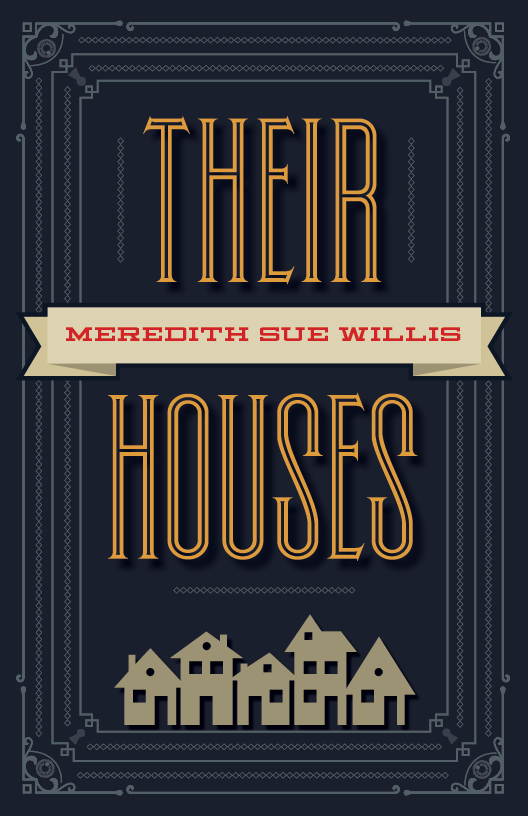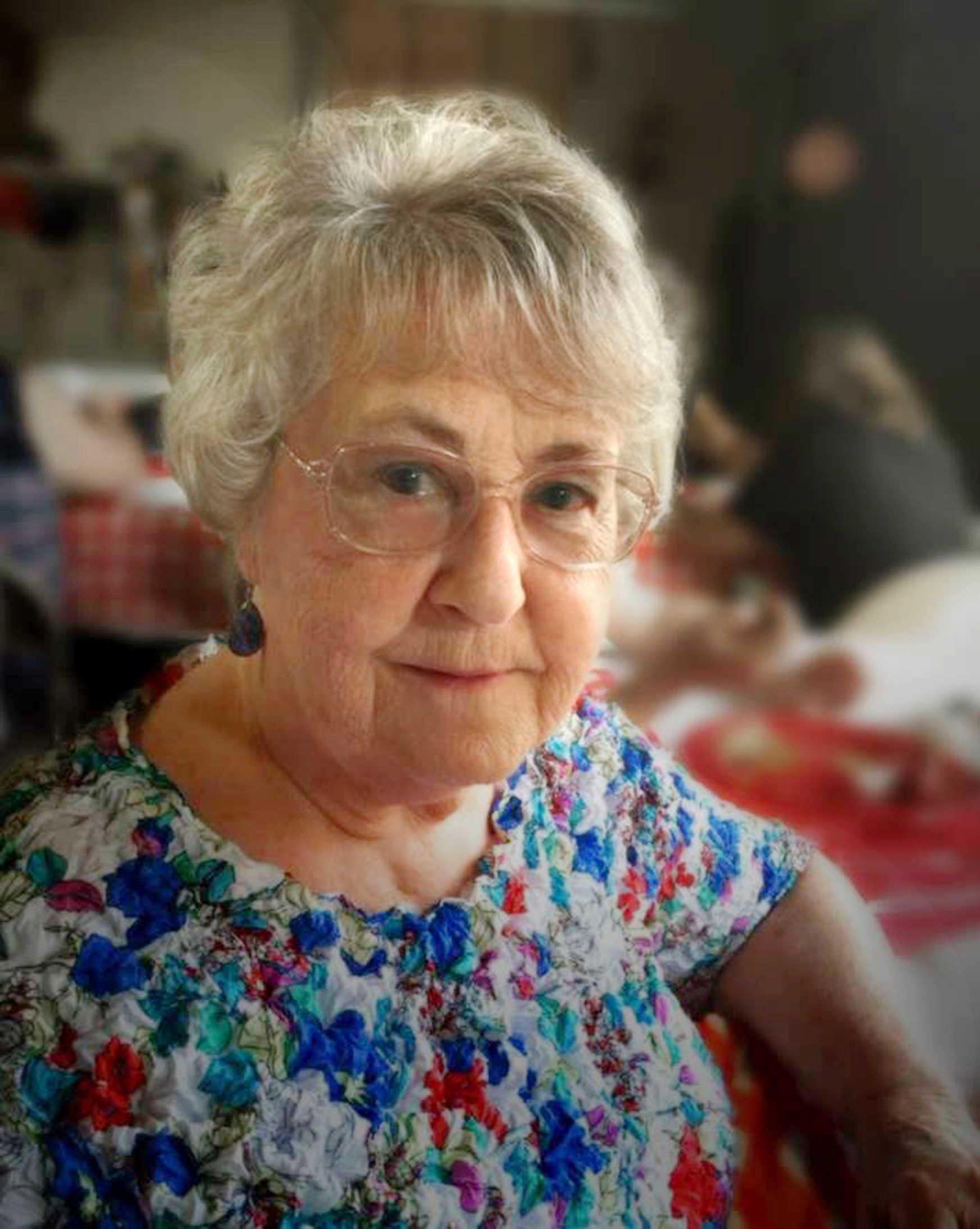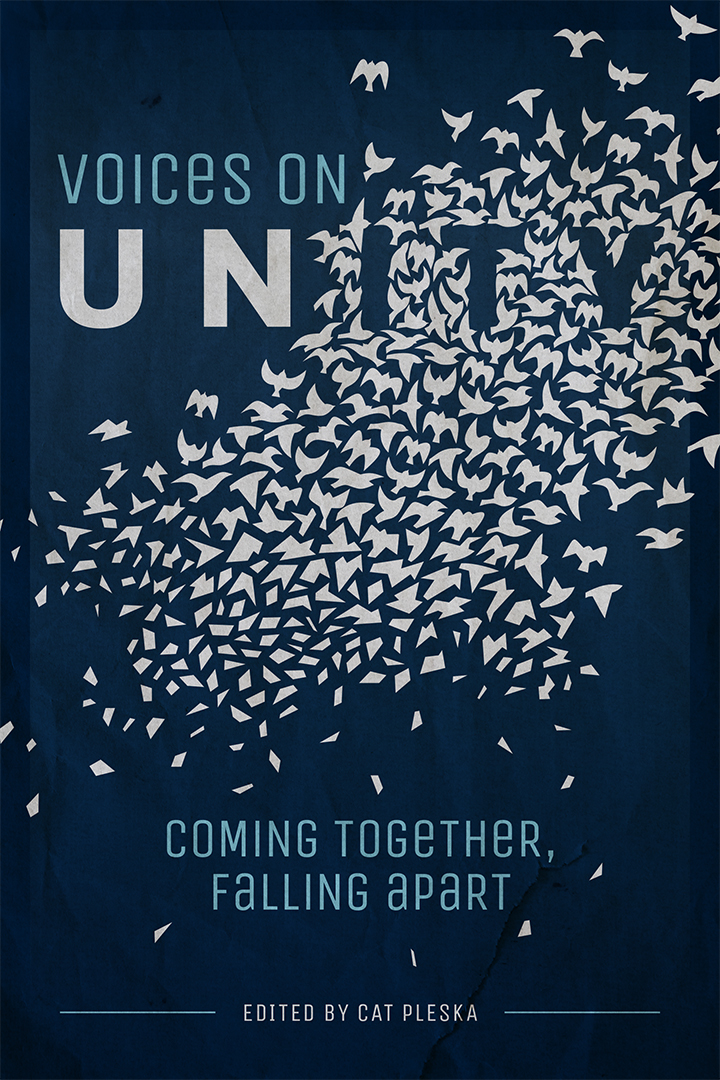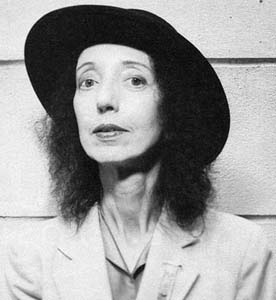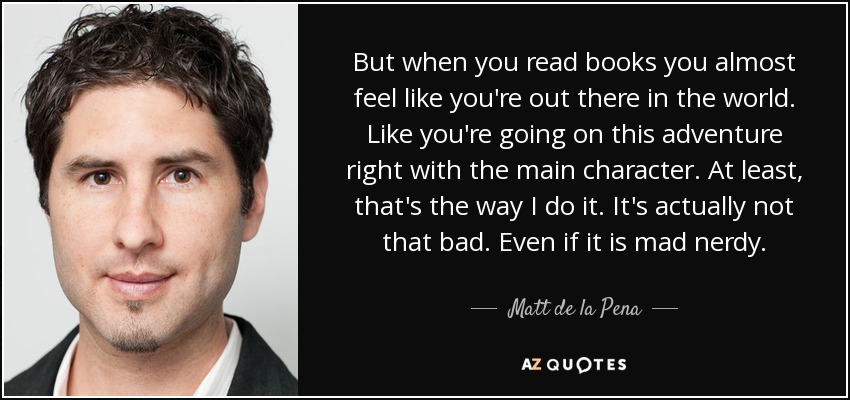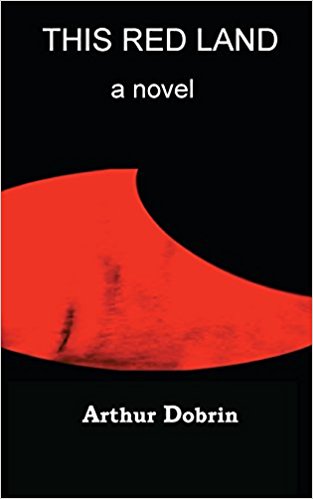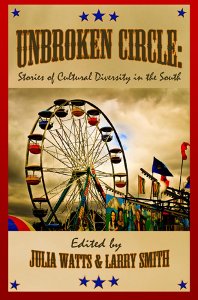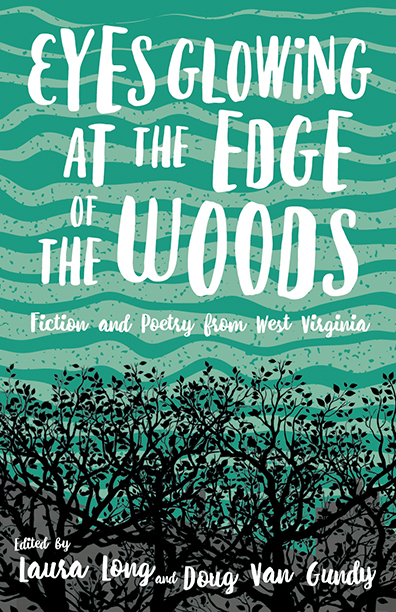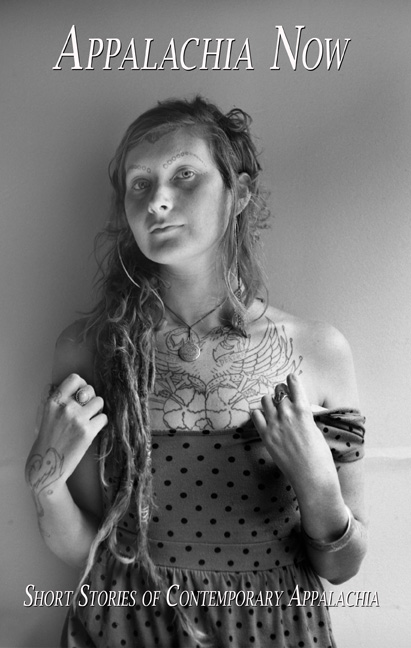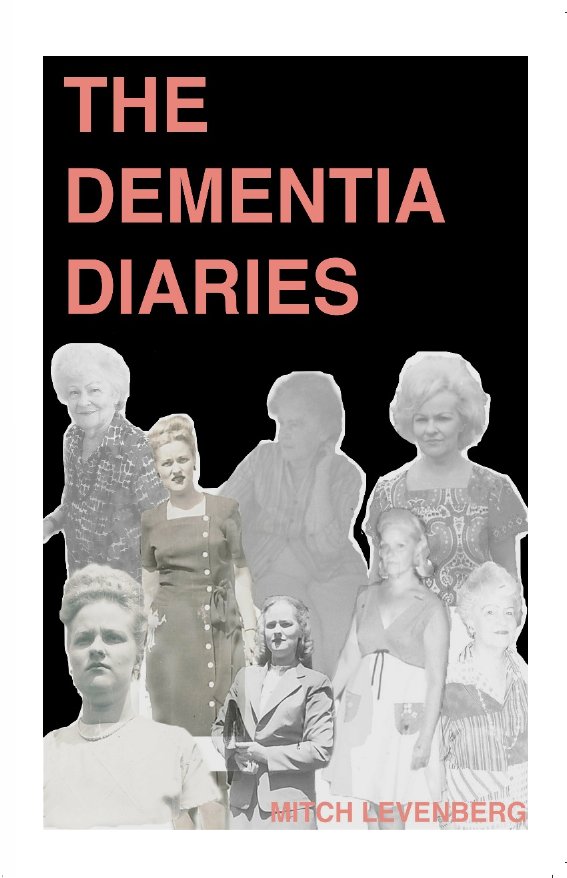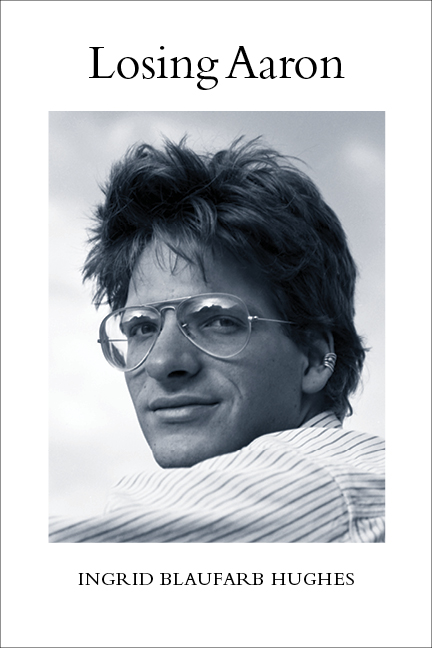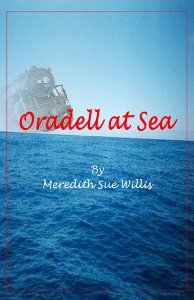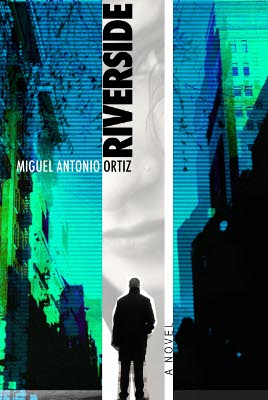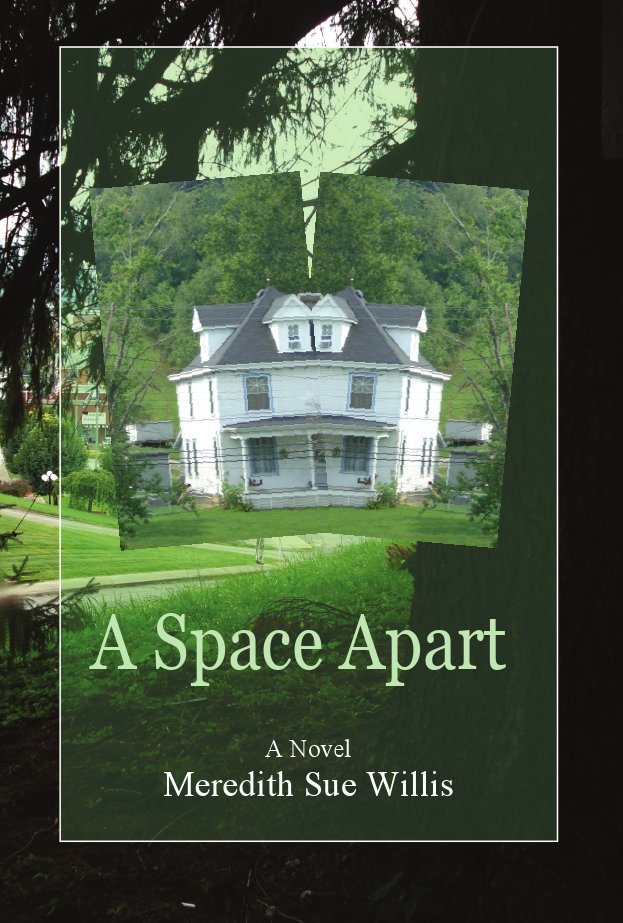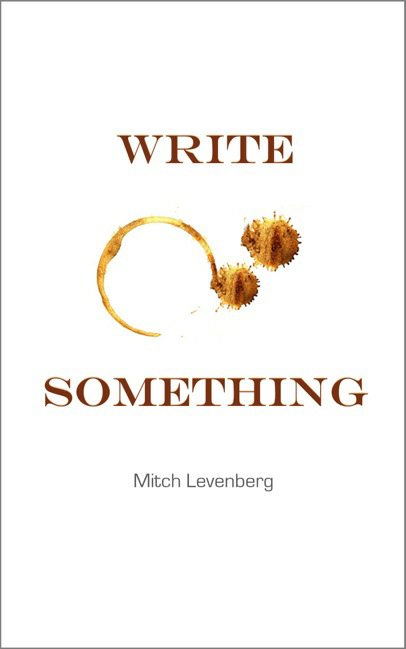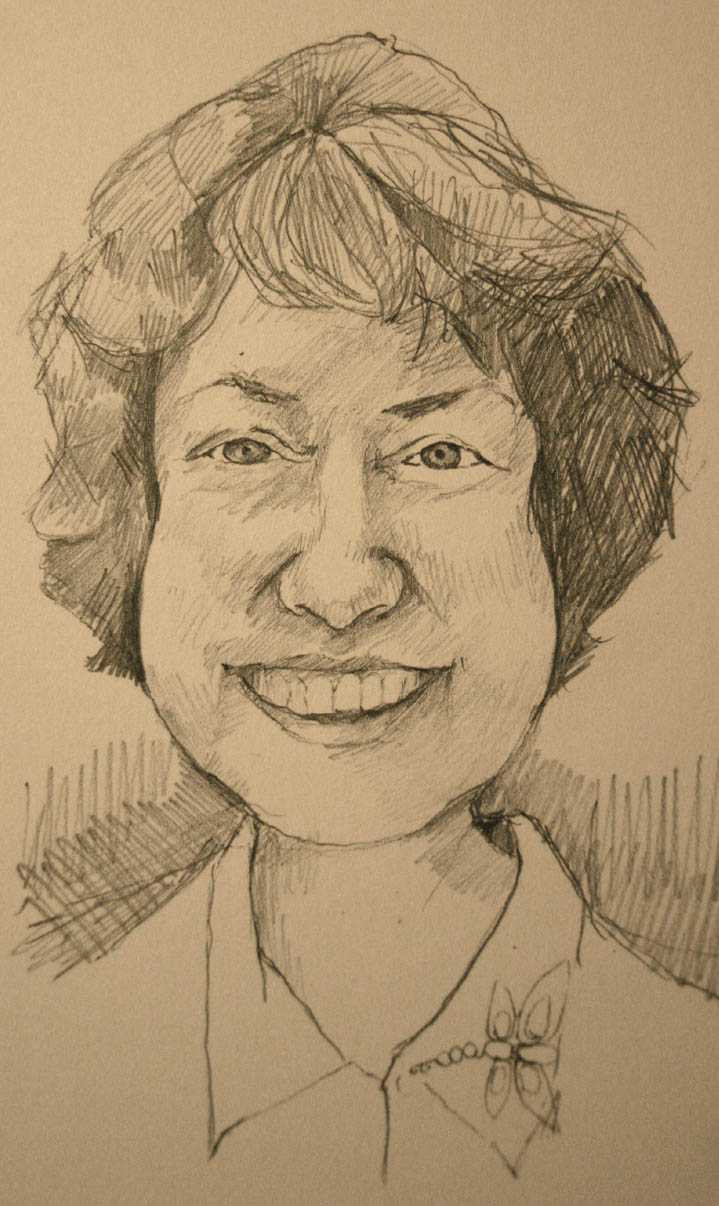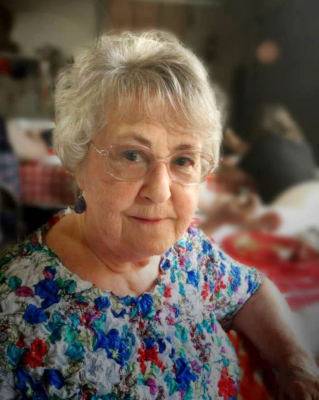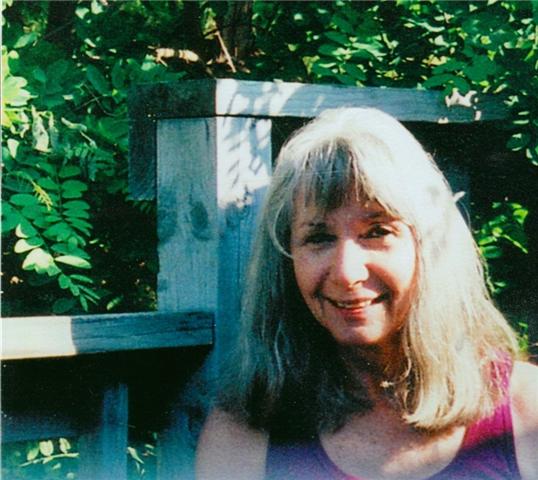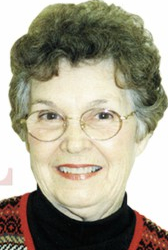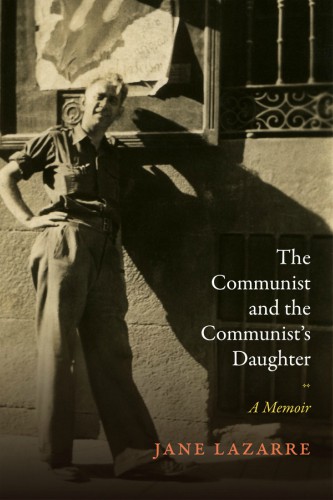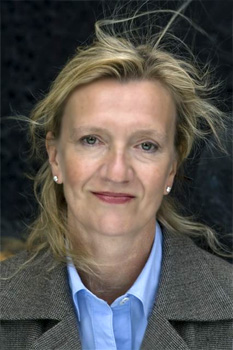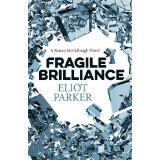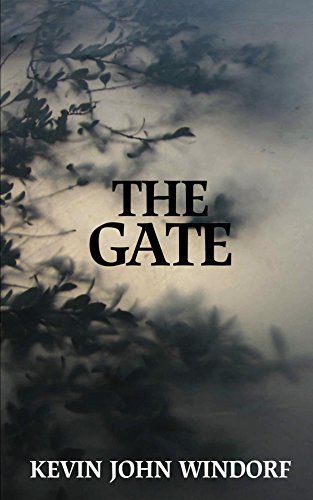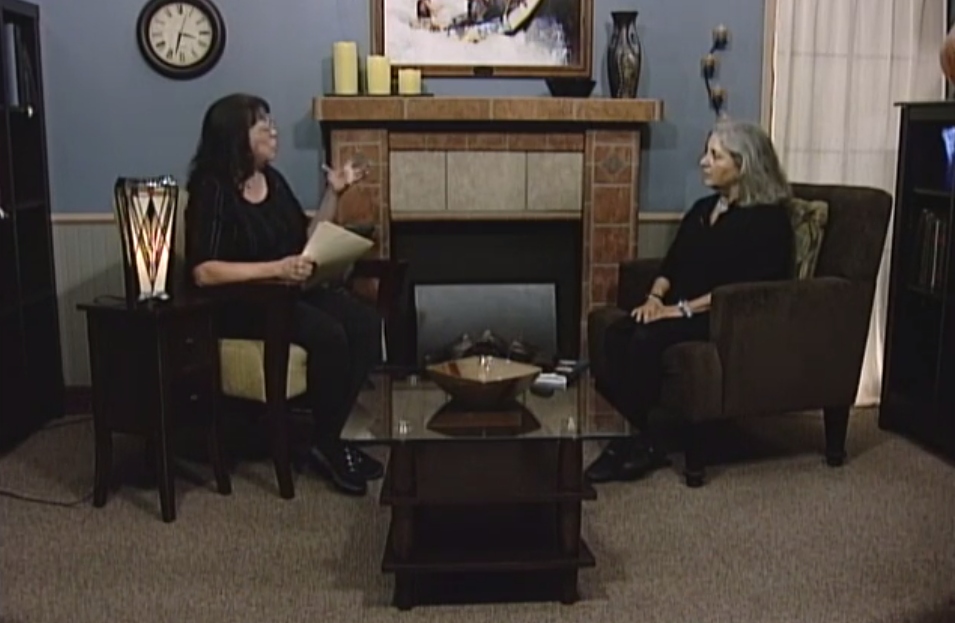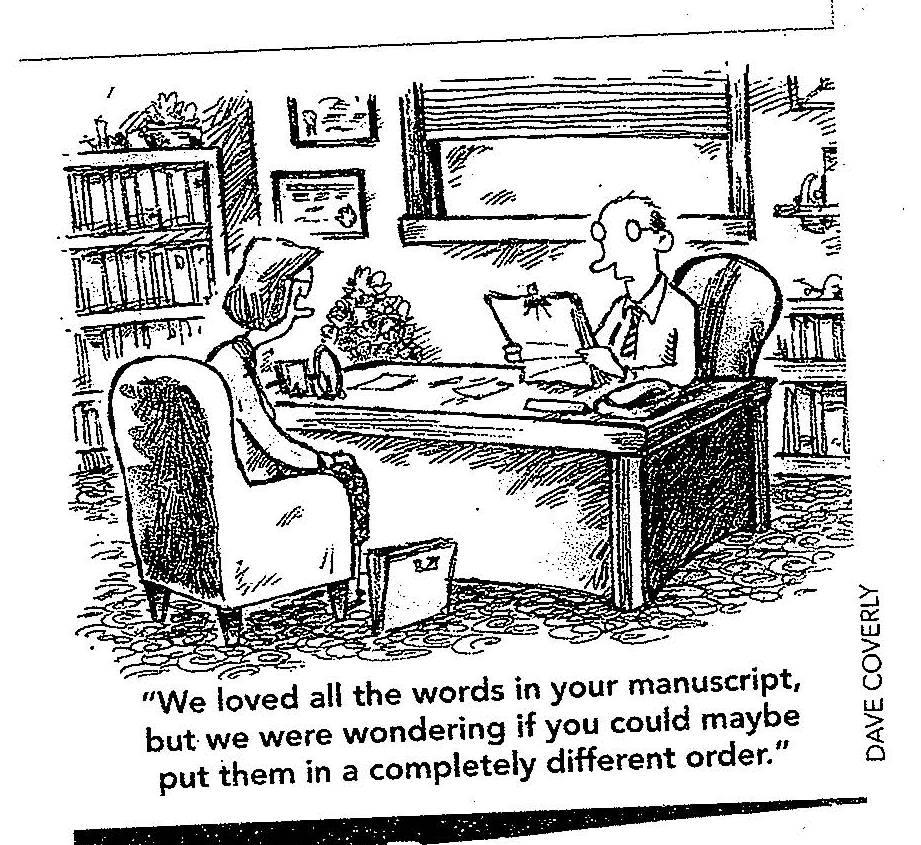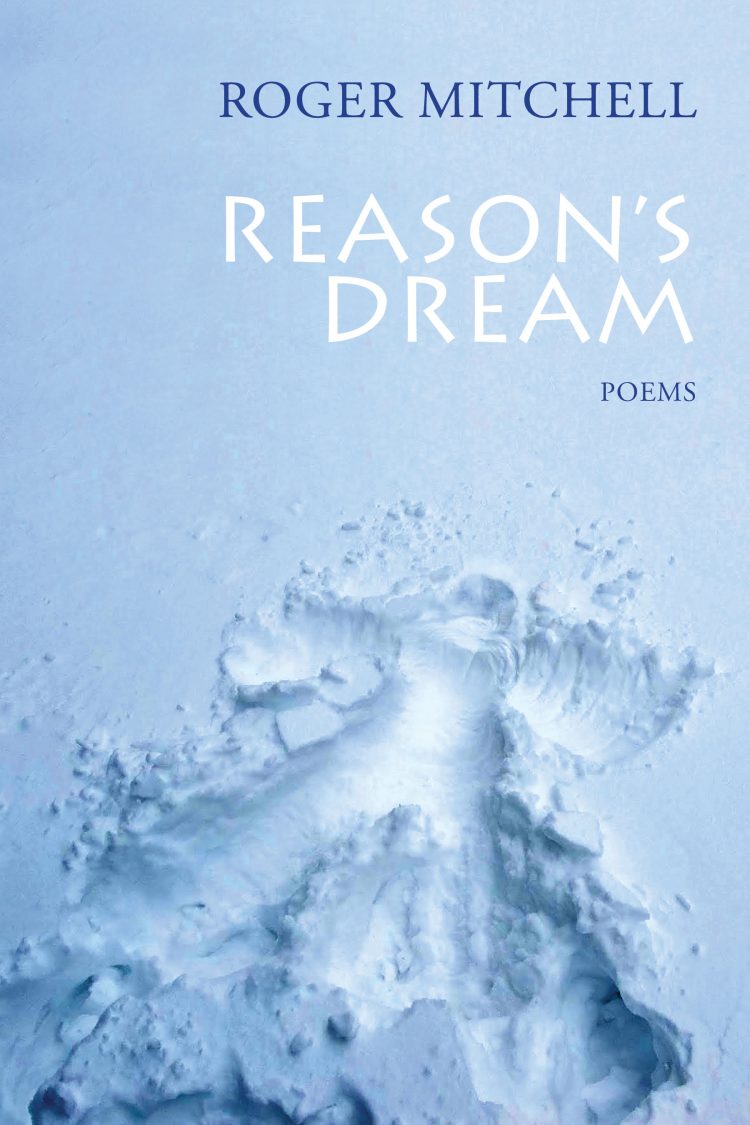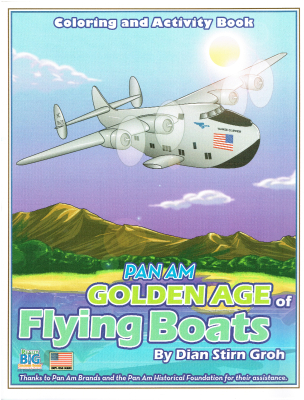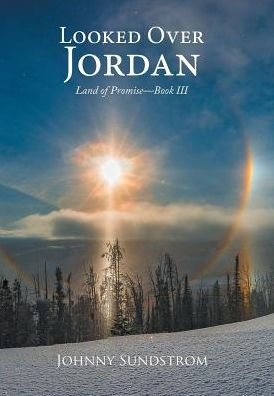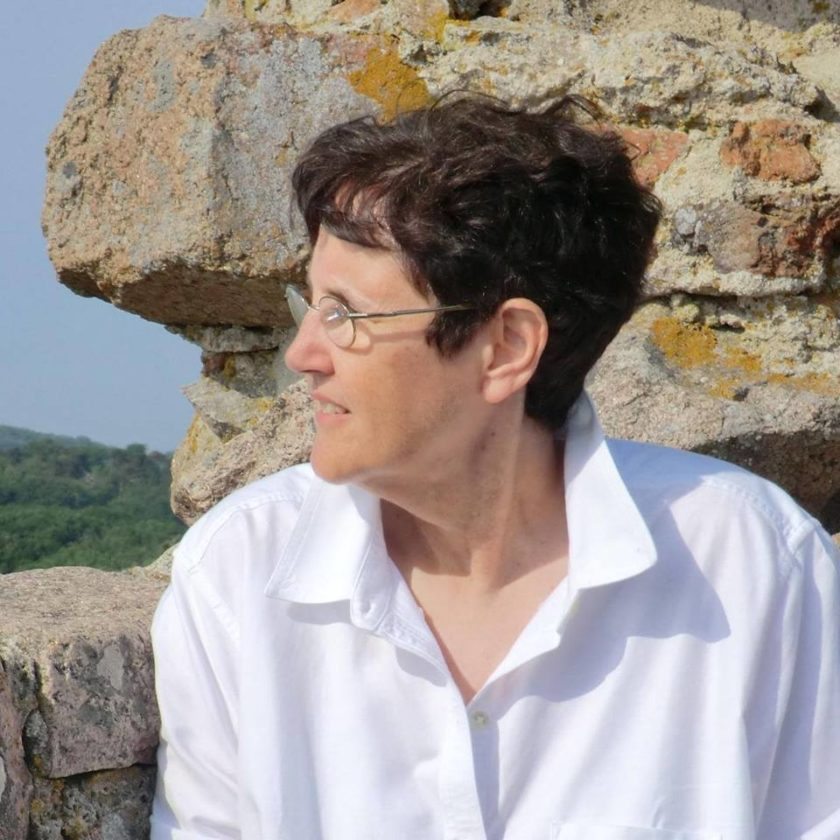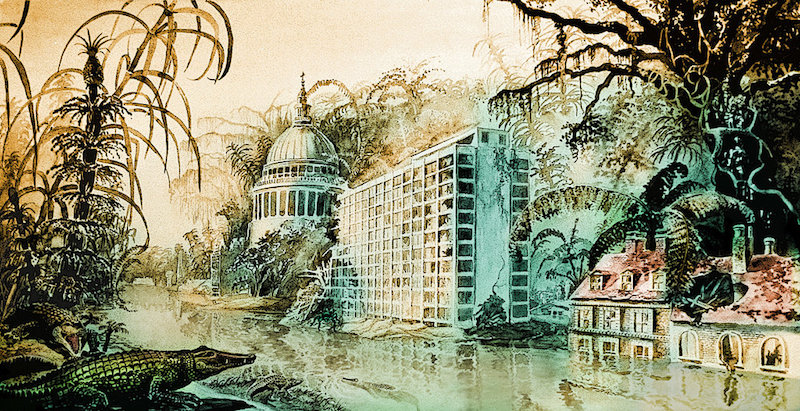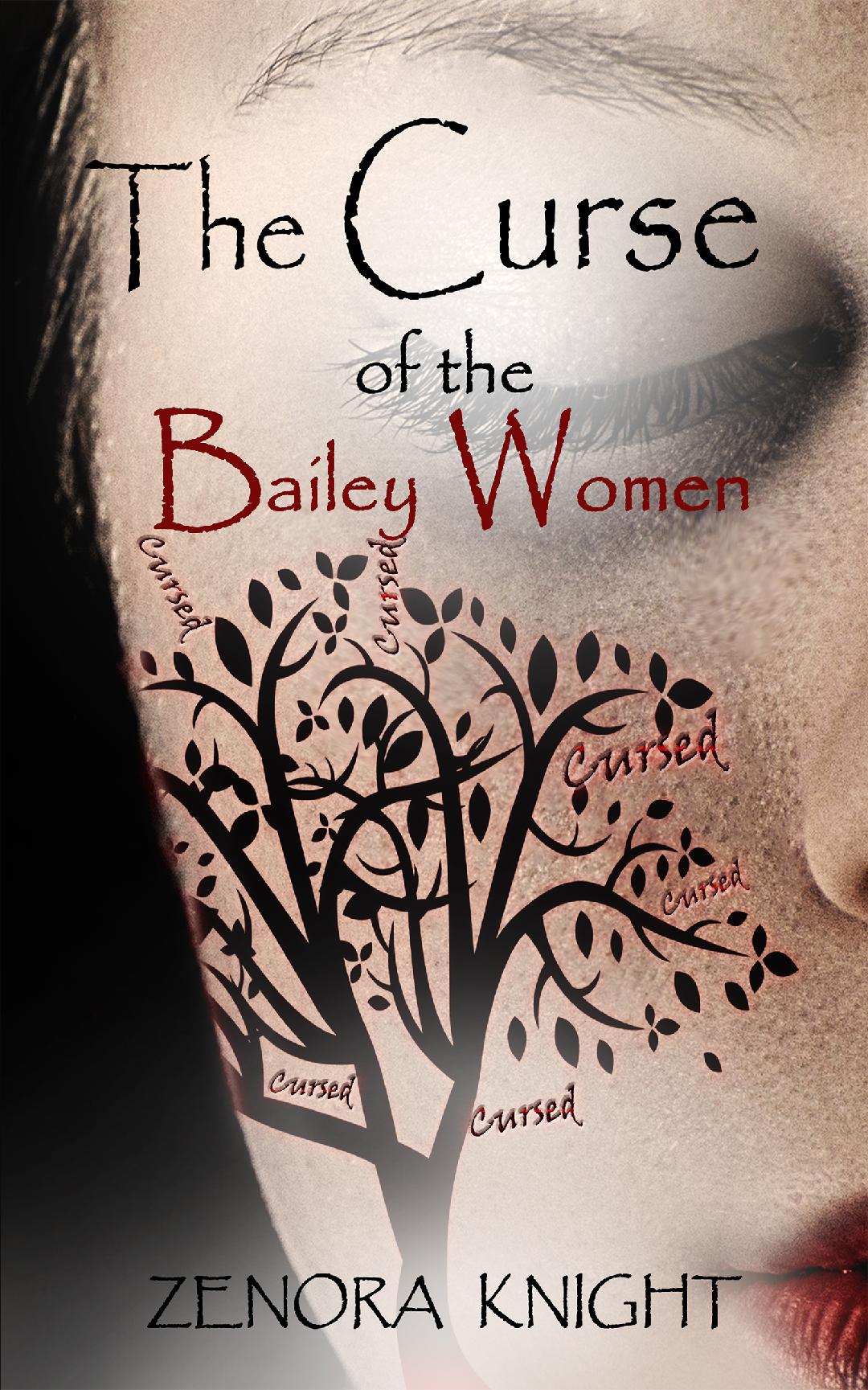Meredith Sue Willis's
Books for Readers # 196
April 20, 2018
When possible, read this newsletter online in its permanent location.
Back Issues MSW Home About Meredith Sue Willis Contact
.
Meredith Sue Willis's
Books for Readers # 196
Coming in August-- MSW's latest novel, Their Houses!!
"Tough-minded, compelling...a terrific read" -- Phillip Lopate
"Sweet, slyly humorous cadences of West Virginia" -- Diane Simmons
"A compelling series of mysteries" --Jane Lazarre
Phyllis Wilson Moore has received the The Women of Appalachia Project (WOAP)'s 2018 Women of Appalachia Project (WOAP) Appalachian Advocate Award. Learn more here.
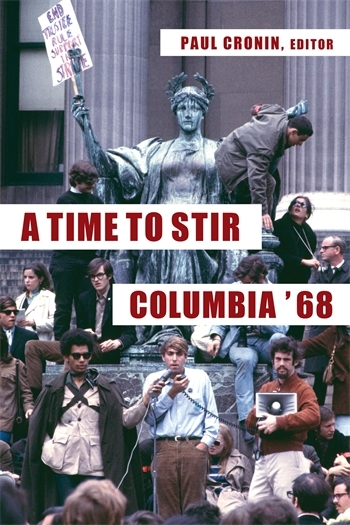
A solid left-leaning perspective and analysis by Eric Mann of events at Columbia University and beyond in the spring of 1968. Also check out A Time to Stir, from Columbia University Press.
Excellent publicity for Voices in Unity: Coming Together, Falling Apart, edited by Cat Pleska. The article is linked here from the Huntington, WV Herald-Dispatch was picked up by US News & World Report, The Houston Chronicle, Chicago Tribune, San Francisco Chronicle, the Kansas City Star and many more.
George Brosi writes reviews of books with Appalachian theme and perspectives. See below, and also visit his Appalachian Mountain Books site for more reviews as well as Appalachian events--updated monthly.
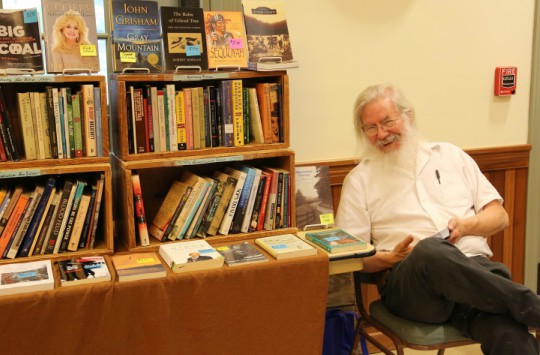
Contents of Issue #196
Books for Readers:
Various Books by Victor Depta
The Living and The Hunted by Matthew De La Peña
Democracy by Joan Didion
The Conformist by Alberto Moravia
A Book of American Martyrs
by Joyce Carol Oates
The Book of the Dead by Muriel
Rukeyser
Last Exit to Brooklyn By Hubert Selby, Jr.
William Tyndale: The Man Who Gave God an English Voice by David Teems
Reviews and Short Takes
Phyllis Moore's Revised Young Adult Appalachian Book List
Family Literary Games
With David Weinberger!
Follow up to Previous Issues
Things to Read & Hear Online
Announcements and News
Irene Weinberger Books
Anthologies of Appalachian Writing
The Appalachian region has been in the news this early spring with the the militant West Virginia teachers who went on strike and earned an improvement in their wages and health coverage, and with lots of debate and self-reflective coverage of the controversial Hillbilly Elegy (See Nathan Leslie's comments here). For a wide and deep way to learn something even more about this and all of the abundant literature of Appalachia, get to know the work, criticism, and activism of George Brosi.
Here at my new home, after nine months of fixing up and getting used to a new place, I am finally able to read again! As I wrote a couple of issues ago, during the move, I was only able to read narratives like Anthony Trollope or Michael Connolly's crime novels. I'm taking a break from Trollope, but still reading Connolly, a solid, clean stylist (MFA credentialed!), and his character Harry Bosch has an interesting back story (a murdered mother, highly stressful service in Vietnam). Harry, a homicide detective, sees himself as a kind of speaker for the dead on a mission to solve brutal murders.
For me, a major plus is that the Connelly books are mostly set in Los Angeles where my only son, only only daughter-in-law, and only granddaughter now live. I get a big kick out of Harry Bosch hopping on the 405 and then, when traffic gets too bad, going local. Bodies are discovered in all sorts of Los Angles spots: a park overlooking the Hollywood Bowl, a little funicular in downtown Los Angeles called Angels' Flight!
What books like Connelly's are not-- and I think this is true of most genre work-- is intellectually or emotionally challenging. The stories have surprises and suspense, but the outcomes are predictable. This is true also of Trollope and most of the other popular Victorians. The pleasure is in the worlds they create, the ride you go on. I don't think of it so much as escapist, but as viewing other worlds from a comfortable railroad observation car.
But now I'm branching out and trying to pick up some books from the past that I missed.
For example, after many years of avoiding it, I finally read Last Exit to Brooklyn by Hubert Selby, Jr. This book was controversial and popular when it came out in 1964. It is, historically speaking, extremely significant as a major break-through in transgressive writing. It's the one that explicitly described all things violent and ugly and grotesque. Along with William Burroughs' work and maybe Charles Bukowski, Selby set the standard for the real world as the lower depths, and for the cult of brutality that has influenced so much American writing of the second half of the twentieth century and the beginning of the twenty-first..
The book is actually several free-standing stories and novellas, and probably the most balanced and touching is the one about Georgette the Queen, a charmer who lives a drugged out, operatic tragedy of a life. Georgette is touchingly romantic as she wastes her love on the worthless Vinnie.
Next comes the famously ugly "Tralala" about the teen whore/robber who makes the world's fastest descent into binge alcoholism and ends up brutally gang raped to death. Has anybody ever topped this in fiction for making everyone see how depraved human beings can be? Lots of imitators, but this one has the strength of its conviction.
Then there is Harry who works for the union and has just about no redeeming social value: he beats his wife; steals from the strike fund (but then so do all the union officials); and rapes a little boy.
Vinnie, Georgette's true love, reappears (I think it's the same Vinnie) in the the final section, a long piece called "Coda." Vinnie and his wife have all of their dialogue AND SHOUTING AND PUNCHING IN CAPS LIKE THIS. This "Coda" is probably the most ambitious section with its group portrait of the projects in Brooklyn (probably Sunset Park near Red Hook), made up of various families and multi-ethnic voices: Italian-American, Jewish-American, African-American-- everyone poor, some hopeless, some striving, some stereotyped.
The book is hard on everyone, probably with more misogyny than racism, but there's plenty of racism too and homophobia as well. Wet shitty diapers play an important part in one section; sex is mostly transactional; at once point an untended baby crawls out on a window ledge and the people hanging out downstairs watch with mild interest the drama of whether it will fall or not.
In the end, I don't think you can evaluate this book in a normal way--what works, what gives pleasure-- it is rather a break-through period piece that insists everything is permitted in literature, and, by the way, human beings suck.
In my effort to cover books I have missed over the years, I also read The Conformist by Alberto Moravia, published in 1950. This is probably best known as a 1970 film directed and written by Bernardo Bertolucci, but I had wanted to read something by Moravia, and this is well worthwhile. The first chapter is gripping and richly foreboding: a lonely little rich boy discovers that he likes to kill animals, and has no idea what to do with his feelings and actions. He begins a precarious relationship with a pedophile defrocked priest, who he apparently kills. This extraordinary beginning struck me as possibly the backstory of a mass murderer, but instead, Marcello grows up to be a Fascist in the early years of the Mussolini regime. He is sent on a mission to set up his former professor for assassination. His real passion, however, is to achieve the life of a totally normal person.
The novel is dated by its possibly unconscious homophobia--maybe I'm being too kind to Moravia when I say that. A sexually predatory Lesbian, married to Marcello's former professor, for example, pursues Marcello's wife, who is in her vaguely bovine placidity, Marcello's greatest success in becoming normal.
Moravia pulls us into Marcello's strange, perverse, claustrophobic world view, and somehow manages to make this part-time Fascist secret agent engaging enough that we eagerly read his whole story.
Joan Didion's highly-praised 1984 Democracy was another book on my list of what I'd missed. She isn't my favorite writer--
I always feel she has contempt for most of us--that she would not, in person, give me the time of day. Yet, paradoxically, she works hard and with brilliant effect to bring us to where she is in her books. It's an odd combination of disdain and determination to communicate.
I have caveats about Democracy, but on balance, I think it is a strong novel. It begins by insisting on what it is not--a family epic-- and it drips with cynicism (realistic enough for its time period, which is the end of the Vietnam war). The protagonist Inez Victor leaves her life in the high altitudes of the American political world, and moves to southeast Asia to work for a refugee agency. It may not be a family epic, but it has echos of altruism in the end and a love story.
Didion does not want it, of course, to be "just" a love story. She uses a circling structure and a meta style with lots of narrator commentary on the events. The narrator, called "Joan Didion," is peripheral to events, but seems to know everything. The story telling is somewhere between clever and brilliant, and if I sound critical of that, it's because it feels a little precious to me, a little too "written."
But the story is worth getting through that. The dialogue in particular is a delight--bracing and funny. There is also a weird and wonderful big murder scene and the incident of a runaway, Inez Victor's daughter, who becomes a bartender in Vietnam just as the the Americans are pulling out. One excellent character is the ironic spin doctor who runs Inez's husband's political campaigns, always faithful, even when he sees clearly how bad things are going. He gets a lot of the best lines.
Passages like the one below are typical of how Didion proceeds in this novel:
As a reader you are ahead of the narrative here.
As a reader you already know that Inez Victor and Jack Lovett left Honolulu together that spring. One reason you know it is because I said so, early on. Had I not said so you would have known it anyway: you would have guessed it, most readers being rather quicker than most narratives, or perhaps you would even have remembered it from the stories that appeared in the newspapers and on television...
She addresses and mildly flatters the reader; she reminds us of the novel's structure; she has something to say about the pace of prose narrative, and she makes up fake news stories. This is all more or less amusing depending on your appreciation of cleverness. Personally, I read the book for Inez's sad mistaken life and her quirky, fascinating family and acquaintances-- and for the love story.
SHORTER REVIEWS (notes by MSW if not otherwise noted)
William Tyndale: The Man Who Gave God an English Voice by David Teems
I read this on Kindle (with which "Tyndale" rhymes). Teems, who turns out to be a Christian musician as well as a biographer, tells the story of William Tyndale's life well. Tyndale translation of the New Testament is the precursor to the King James Bible. Much of the beautiful English in the KJV is the same as Tyndale translations.
To offer the sacred books to ordinary people was, in Tyndale's time, not only new but highly dangerous. Sir Thomas More is the villain in this biography, trying to stop this spreading of the Bible in the vulgar tongue. Tyndale was on the run much of his adult life, which wasn't a long one, but managed to do the famous translation from Greek of the New Testament, plus the Pentateuch, plus more.
He was arrested in one of the Catholic German states and after a year of imprisonment and interrogation (with apparently little or no torture), was condemned for heresy, strangled, and burnt. This form of executions was was considered gentle compared to what was going on in England with its grisly murders first of the "reformers" (the rising Protestants), then of the Catholics (including Tyndale's nemesis Thomas More) under Henry VIII.. There was a brief swing back to killing Protestants under Mary Tudor, then back to hounding Catholics under Elisabeth I. What a grim record for a religion ostensible of love.
One striking part of the story is that Henry VIII was given Tyndale's English Testament, probably, by Anne Boleyn, and Henry was moving toward Protestantism even as his agents were hounding Tyndale in Europe.
The argument between 16th century Catholics and early Protestants was clarified for me. The Catholics saw as the final religious authority the institutional Church itself, with all its history and study. For Protestants, the Word of God as embodied in the Bible, preferably in a translation readable by man, was the final authority.
A Book of American Martyrs by Joyce Carol Oates
In a recent issue of this newsletter, Shelley Ettinger praised A Book of American Martyrs, saying it represented Oates back and better than ever. The novel has great energy and class consciousness (it's very tough on liberals). It is amazingly well imagined, especially the internal life of the fanatic doctor-killing Dunphy, and there is also a lot of excellent writing about boxing (the eldest Dunphy daughter, D.D. " The Hammer of Jesus" Dunphy, becomes a boxer). Oates also does a wonderful job on delineating how ideology carried to extremes damages a lot more people than the assassin and the assassinated. She brings in through the voices of various minor characters many points of view on abortion, and she excels in honest appreciation for the strengths of the poor and oppressed.
The Living and The Hunted by Matthew De La Peña
These two linked young adult novels are narrated by "Shy" Espinoza, a 17 year old Mexican-American who is very likable, full of both self-doubt and reasonable self-confidence. His world is set slightly in a future that is just dystopian enough to feel both realistic and frightening.
I assumed The Living was a self-contained story, but it turns out it leaves things only partly solved, and carries on into The Hunted. I particularly liked the part early in the first book when Shy takes a summer job as a towel boy on a cruise ship heading out into the Pacific. Lots of class insight, and Shy falls in love, gets sort of rejected. There is a mysterious suicide, and then a tsunami and a lifeboat. All of which was plenty of adventure for me, but it's only the beginning.
The survivors end up on an island where it turns out medical research has been underway. The corpses start to pile up-- death by murder, massacre and a terrible illness. The book ends with even fewer survivors--five people including Shy and a mysterious shoeshine guy who is really (I think) special ops.
And then we're off on The Hunted. The little group sails home for California where there have been earthquakes and more of the deadly disease.The second book has moved from mildly dystopian to pretty much post-apocalyptic. More good guys die, along with tons of bad.
Through both books, Shy's voice holds it all together. This second novel ends with a few things still open for a possible third novel. It is inventive and gripping, and I look forward to more of De la Peña's work.
The Book of the Dead Muriel Rukeyser (a new edition with an introduction by
Catherine Venable Moore)
This is a very welcome, West Virginia-focused edition of Muriel Rukeyser's long poem about the Hawk's Nest/Gauley Bridge tunnel and worker silicosis in West Virginia. Nearly ninety years ago, hundreds of workers, while digging a big tunnel for diversion of water for power, contracted silicosis lung disease from drilling through silicon rock with dry drills and no face masks. Great numbers of them died. The dry drills and no face masks were all about speed and profit for Union Carbide and Carbon Corporation and their stockholders. This is said to be the largest corporate-industrial crime in US history.
Since many of the workers were brought in for the job from other states, and since many were also black in a time of segregation, West Virginians themselves tend to have had little acquaintance with the events. Rukeyser was herself an outsider, a poet and a New York Jew.
Thus the introduction by Catherine Venable Moore, a nationally known writer from West Virginia, is extremely valuable. She approaches the events as a sympathetic native and makes the connection to corporate crimes that people in West Virginia and the rest of Appalachia do know-- the Buffalo Creek flood, for example, as well as some natural disasters.
Great thanks to WVU Press for this new edition!
Some Books by Victor Depta
Brother and Sister: A Memoir
The Helen Poems
The Little Henry Poems
The Helen Poems especially are an interesting study in verse of single parenthood, from the breakup of a marriage through the vicissitudes of an intense and loving relationship between father and daughter, to the daughter going off on her own.
The Little Henry poems are more addressed to the grandchild, with verse and some silliness, but also the sadness of a grandparent separated by a continent from the beloved. That's one I really take personally.
Get the books online or from the publisher at www.blairmtp.net
FOLLOW UP
On Latin-American writers: Ingrid Hughes says, "Another must read in Latino lit is Junot Diaz. "
Nathan Leslie on Hillbilly Elegy :
Nathan Leslie says of Hillbilly Elegy, "I wanted to love this book, but overall found it underwhelming. My theory about this book is that it caught fire simply as a result of the Trump election. It was all timing. If it was not for Donald Trump, this book would have gone unnoticed. The prose is not terrible and Vance tells his story efficiently, but many others have done so more effectively--most notably Mary Karr's effervescence Liar's Club. Hillbilly Elegy has a great title and the timing could not have been better, but ....This book really...just tells Vance's story. Keep your expectations to a minimum here."
GEORGE BROSI ON APPALACHIAN BOOKS
George Brosi is one of the deep thinkers on Appalachian literature which he has taught, edited, and sold for many years. He is also a political activist, and always worth reading. Take a look at some of his reviews linked on this webssite, and also see his website. Sample writings include:Brosi on Hillbilly Elegy; Brosi on James Still; Brosi on Ramp Hollow (See our take on this book here).
READ AND LISTEN ONLINE
An updated version of Phyllis Wilson Moore's list of Appalachian related young adult novels! I'm proud to be on this list!
Check out a rediscovered piece by David Weinberger on family word games (truth in advertising: I'm part of this family!)-- Lots of fun. This piece made available thanks to the publication Wordways.
Ingrid Hughes, author of Losing Aaron, has a blog on Psychology Today called "Not the Whole Person." A recent posting about schizophrenia and marijuana was extremely popular.
Check out Hyperallergenic Week-end--an online journal of the arts.
An interesting piece online about physicians as storytellers.
A Reading List from the Sewanee Writer's Conference by Lisa Fay Coutley
An interesting story by John Edgar Wideman
An odd piece on Joyce Carol Oates' tweets.
Poet Lucie Brock-Broido died in March (2018). Here are links to some of her poems, and here is her o
bituary in the New York Times.
Rachid Nachlin's story "See Andrew Run" is available online!
NancyKay Shapiro's excellent blog of reviews and ideas for reading, Reading Up: Books and Me.
ANNOUNCEMENTS, UPCOMING BOOKS, GOOD NEWS, AND MORE.
Marsh Hawk Press's yearly poetry books contest is closing soon!
Darren C. Demaree's poetry manuscript Two Towns Over had been selected by Campbell McGrath as the winner of the Louise Bogan Award from Trio House Press. "Darren is a dangerous dreamer, concocting love poems to his home state, and pastorals to his true love. But there's always something more beneath the surface: sex and violence, villainy, mutilation, uneasy redemption and troubled ecstasy. These poems are pins pressed deep in the disfigured heart of America. They work a dark magic on the reader — they're unsettling in necessary ways." Christopher Michel Learn more at Darren Demaree's website.
New Novel By Bill Luvaas
Bill Luvaas's new novel, Welcome To Saint Angel, is just out with Anaphora Literary Press and available on Amazon and elsewhere. The novel is a dead-serious comedy about development gone mad and a rural community’s—sometimes lethal—battle to stop unscrupulous developers and drought deniers from turning their beloved high-desert home into a suburban nightmare. Iconoclastic inventor Al Sharpe and his zany friends must stand up to powerful adversaries to protect their land from the bulldozers. Part environmental fiction, part social satire, it speaks to the impact of heedless development on the natural environment and on people’s lives. To learn more or order the book or go to the publisher's website .
This Red Land by Arthur Dobrin was just published by Nsemia, a Canadian-Kenyan publisher.
Latest poems by Barbara Crooker on her website.
Check Out These Excellent Anthologies of Appalachian Writing
CURRENT FROM IRENE WEINBERGER BOOKS:
Meredith Sue Willis's
Books for Readers # 197
July 12, 2018
When possible, read this newsletter online in its permanent location.
Back Issues MSW Home About Meredith Sue Willis Contact
.
Latest Meredith Sue Willis news:
Post up on WVU Press's blog, "Booktimist."
Review of MSW's website at Woven Tale Press Central, the web presence of Woven Tale Press.
Book tour with Their Houses in September! I'll be visiting Huntington, WV, Fairmont, Parkersburg, Shinnston,Morgantown, Clarksburg, and Shepherdstown.
Excellent pre-review of Their Houses from Foreword
Contents of Issue #197 Books for Readers:
Two Books by Chimamanda Ngozi Adichie
Delta Wedding by Eudora Welty
Middlemarch Again
Edwina Pendarvis on Gretel Ehrlich
Follow up to Previous Issues
Reviews and Short Takes
One More on Hillbilly Elegy
Manhattan Beach by Jennifer Egan
The Color of Lies by Donna Meredith
Thug Lovin' by Wahida Clark
The Round House by Louise Erdrich
Fools by Joan Silber
Amy Stewart Mysteries
Ron Chernow's Alexander Hamilton
Things to Read & Hear Online
Announcements and News
Anthologies of Appalachian Writing
Irene Weinberger Books
Meredith Sue Willis's
Books for Readers # 197
If you are reading this newsletter, then you are invited to send me a review of a book you like--or hate! I'll take any kind of book, but have some preference for ones that are not getting a lot of play in the media. That includes older books and overlooked books as well as small press, university press, micromini press and self-published books-- anything you want people to read or know about. You have all the rights to your review, so feel free and even encouraged to post it on Amazon.com or Goodreads or wherever else you'd like.
The books I review myself include ones that are popular and commercially published, although those generally only get short notes from me. I have never tried to keep up with all the terrific books being published, but I do like to read books I've missed. Thus, some of my recent reading includes Chimamanda Ngozi Adichie's Half of a Yellow Sun and Louise Erdrich's The Round House among others. I also try to make occasional forays beyond my comfort zone, as I did with Wahida Clark's Thug Lovin'. Also, this issue I once again have something to say about Victorian novels (Middlemarch one more time!).
First up this issue is Eddy Pendarvis's review of This Cold Heaven: Seven Seasons in Greenland by Gretel Ehrlich. (There's also a short review by Pendarvis of The Color of Lies by Donna Meredith).
As usual, reviews and comments with no other name attached are by MSW.
A Definitely Unparadisaical Heaven: Edwina Pendarvis Reviews This Cold Heaven: Seven Seasons in Greenland by Gretel Ehrlich
I never would have picked up Gretel Ehrlich’s This Cold Heaven: Seven Seasons in Greenland if I’d come across it in a bookstore. I have no special interest in travel books and very little curiosity about Greenland, a country my college roommates years ago referred to facetiously as “the sleeping giant” in their many rounds of “Risk” (a board game that has players represent different nations and vie for global domination).
Ehrlich’s book showed up in a stack of used books a friend gave me to look through in case I wanted to read any of them. Of the books she sent, This Cold Heaven had the prettiest cover, so I started reading that one. The first few pages didn’t impress me much, as the author seemed to strain after metaphors. Either I grew accustomed to them or she left off a little; but by the second chapter, I was hooked on her striking tale of travels on the coldest and darkest island in the world.
I’m still not sure why I liked the book so much. As I read, I wondered if maybe it just made me glad not to be in Greenland. But that wasn’t the main reason. I learned a whole lot about what life is like in
a world that I came to see as both beautiful and implacable in its resistance to domestication. The Greenland Ehrlich describes seems so imposing and austere in its beauty that it must be the opposite of Eden. It made me think about Mary Shelley’s Frankenstein and why her monster fixed on the frozen north for his end. But the contrast between the icy surroundings and the warmth of the people who populate Ehrlich’s adventures is central to its appeal. Her story includes Inuits who take her along on hunts and long-distance travels by dogsled; and, in a surprising narrative move, she intersperses her account of seven seasons in Greenland with accounts from the journals of the Danish-Inuit explorer, Knud Rasmussen, who spent seven years journeying in Greenland and across the far north in the early twentieth century. This technique allowed her to enliven her story with the exploits of Rasmussen and his comrades and to compare the lifeways he found with those she found nearly a hundred years’ later. The book is filled with exciting tales of wandering across the ice, falling into bone-chilling water, near-starvation, and the bravery of people willing to risk life and limb to survive there.
Another appeal of the book for me was trying to figure out what drove the author to love Greenland so much that she endured the kind of discomforts she described. She never completely won my trust, but she intrigued me and I definitely admired her boldness. Some “facts” I took with a grain of salt. For example, according to Ehrlich, the Inuit people she met belonged to a group that, wherever they live, from Alaska across Canada and in Greenland speak the same language and have done so for centuries. Knowing how quickly language changes across distances of space and time, I figured she was exaggerating some. A quick search on the Internet confirmed that there are Inuit “languages” not one Inuit language and that understanding of one group by another separated by much distance is not the case. She wasn’t completely off the mark, and whether they’re Inuit languages or Inuit dialects might be debatable; but she was romanticizing. On the other hand, I liked her matter-of-fact—neither prudish nor prurient—accounts of what could’ve been capitalized on: the communal and open attitudes toward sex that were common a century ago among the indigenous people who faced so much danger together.
I guess what finally sums up my affection for her book is that Ehrlich introduced me to an exotic new geography and history, alien to ones I’d been familiar with. Even better, she made me feel the cold and darkness surrounding humans in the northernmost latitudes and, in contrast, the warmth of the human spirit facing up to death and disaster to get the most happiness possible out of a short stint on earth. Those gifts from the author (and from the friend who sent the books she’d finished) are a pretty fair exchange for the few days’ time spent reading a travel saga I happened onto.
Delta Wedding by Eudora Welty
I thought I was going to have trouble finishing this well-known novel because of Welty's casual racism. Part of the problem was that I couldn't separate Welty's own attitudes as she was writing in 1946 from those of the white characters of the novel, which is set in 1920's, on a plantation where the family (attractive and quirky and all those things we love about our white
Southern book characters) depends totally on their "Negroes." The problem is that the Fairchilds still think of the people who work for them as "theirs." The black people become a little more complex as the story goes on, but they aren't given any inner life.
I did keep reading, though, and in the end got caught up in this big snakeball of a novel.
The Fairchilds are all presented as spoiled, charming, wildly attractive, and both imaginative and clannish. Many of them get a point of view, including Ellen the mother, who is not a blood Fairchild. She can't be much over forty but has had ten pregnancies. She reminds me with her delicate and sharp perceptions of the mother in Virginia Woolf's To the Lighthouse. Another important point-of-view is from Laura, the visiting orphaned girl whose mother was a Fairchild.
The novel is held together nicely by a tight time frame (just over a week) and by the wedding (Dabney's to someone "unsuitable," the plantation overseer from the mountains). Threads that lead us through the complex cast of characters include preparations for the wedding, a missing brooch Ellen wanted to wear for the wedding, her husband Battle and his fury over who his daughter is marrying, but also his inability to stand in the way of it. He loves his children fiercely and is constantly threatening to kill or at least beat them all.
Another piece that comes back repeatedly is an incident when the family is walking on a railroad trestle, and the developmentally disabled cousin gets her foot caught in the track. Heroic George stays with her-- but the train stops just in time. Robbie, who is married to George, sees the whole incident as George choosing family over her, and leaves him. But the novel has the ending of a classical comedy– Robbie comes back to George, there's the wedding. All happy outcomes.
Welty seems indulgent to these people who I found to be generally spoiled brats, but it's a fascinating story anyhow..
For a review when it first came out, see the New York Times comments.
Half of a Yellow Sun and Americanah by Chimamanda Ngozi Adichie
I loved Half of a Yellow Sun and admired but didn't love Americanah. Half of a Yellow Sun is a rich and broad war novel, about middle class Igbo people during the Biafran War period. Educated people who live with servants in lovely homes have to leave their places and struggle for food and share sanitary facilities with lots of others. Babies die of disease and starvation. People of no particular political involvement are assasinated.Two major point-of-view characters are Olanna and Ugwu, the former part of the intellectual elite of a university town and the latter a bright village boy who becomes a houseboy for Olanna and her partner.
There is some less-than-spectacular plotting, especially the foreshadowing of coming events (I usually knew when a major character was going to be endangered or killed, or let live), but that is a minor flaw.
Adichie handles beautifully all the important parts of her novel: how war looks on the ground to civilians as well as conscripted soldiers; small details of everyday life; indigenous methods for changing the course of events (how to make someone love someone else, etc.)
She isn't afraid to include a white British male point-of-view character (Richard, who loves Olanna's twin sister Kainene), or to leave some things unexplained or mysterious. She takes on deeply disturbing moral dilemmas, like the gang rape Ugwu participates in while a conscripted soldier. There is also the mystery of what happened to Olanna's charismatic twin sister.
What do we really know about each other across oceans and ethnic divides? We see images of some spectacular horror-- the bloated starving baby or the little body dead in the surf or the girl fleeing napalm with her clothes ripped off. This novel gives us people, and gives us the Biafran war.
For me, Americanah has a feeling of having been written for an audience, with a deadline, while Yellow Sun seems to have been written for Adichie's personal past, for her parents, for her people.
Don't get me wrong: Americanah amply demonstrates Adichie's gargantuan talent. If is innately interesting for what it says about color, race, all sorts of isms--and hair and beauty parlors! But Yellow Sun is a richer novel.
Middlemarch, One More Time
(Also see Joel Weinberger's review in Issue # 192 and a note by Francine Prose about it.)It is probably still my favorite novel of all time. Again I noted how 19th century literature is far more readable to me
than it was fifty years ago– this is not about me being smarter or more patient, because I'm neither, but rather about having become accustomed to the rhythms of the prose, and also no longer afraid of not getting it.
On the other hand, the mystery is gone– that's the flip side (like when I was really young and fantasized about what a samovar was when I first read Tolstoy and Dostoyevsky). What in the past seemed final and tragic now seems to have much more to do with the constant changes of life and young people suffering and finding their way
The saddest figure, in the end, is Lydgate, who dies young and disappointed (I'd forgotten the summaries at the end of what happened to people). His wife, Rosamund Vincy-Lydgate is in a lot of ways the villain of the piece, but also a wonderful example of a Victorian woman's distorted talents. She acts in totally certainty that her pretty face and perfect manners give her eternal moral high ground– and she is superbly persistent in getting what she wants.
Dorothea seems much younger now, and also terribly impetuous. Yes, it would have been great if she had had more space to develop her talents and passions, but this reading I saw many more of her flaws. She represents, (along with Rosamund) the powerfully negative effects of how middle and upper class British women's lives were distorted by the rules of class and gender: "Marriage," Eliot writes of Dorothea, "which was to bring guidance into worthy and imperative occupation, never freed her from the gentlewoman's oppressive liberty: it had not even filled her leisure with the ruminant joy of unchecked tenderness. Her blooming full-pulsed youth stood there in a moral imprisonment which made itself one with the chill, colorless, narrowed landscape, with the shrunken furniture, the never-read books, and the ghostly stag in a pale fantastic world that seemed to be vanishing from the daylight." (Location: 3,903 in the e-book version).
Bulstrode and Harriet Bulstrode are still wonderful in their little subplot, which I still think is one of the best parts of the book. This time I liked Will Ladislaw so much better than in my early readings. I think I originally bought into the "Italian with white mice" comment on him. I always thought he was too light and curly for Dorothea, but that was mostly my romantic over-estimation of her. True, the perfect match for doing good in the world would have been Dorothea and Lydgate paired up, but that's part of the conscious theme of the book: how marriage can break as well as make people (Fred Vincy's love of Mary Garth and their marriage will certainly make something of him).
I was also struck this time by how funny Eliot is– it's a heavy kind of humor, sometimes laboriously built up, but still much funnier than she gets credit for. Sharp, witty Mrs. Cadwallader and her laid-back clerical husband are entertaining and completely believable. Eliot rather idealizes the Garth family, especially Caleb (who supposedly was based on Eliot's father, as was, in part, Adam Bede of the eponymous novel.)
It's really the story of a community, as the name implies as well as a study of marriage– real, in-process marriages, not happy endings. It's a love story with lots of obstacles, there is a little melodrama, some science.
I get it that 21st centurions find it too heavy, too long, but. oh, it's a pleasure to me to dwell in that place for a while.
FOLLOW UP ON PAST ISSUES:
Carole Rosenthal writes, "I always liked Last Exit to Brooklyn too (See our review of it here) and found it very moving back in the day. I even taught it one year; re: Vinnie as a name--lots of Vinnies and Marys in this book but they are not necessarily the same characters."
SHORTER REVIEWS
Manhattan Beach by Jennifer Egan
I liked Manhattan Beach more than enough to recommend it, and I do. There was a lot of brouhaha about it being an historical novel (set mostly during WWII) after Egan's previous experimental novel in linked stories, A Visit from the Good Squad (that book included one story in the form of a power point presentation, for example) and also had a touch of science fiction.
This one is solidly researched, and I enjoyed the world it creates, even if it feels a little clotted with detail. This novel is more conventional, too, than Goon Squad, in using the standard multiple third person point of view among her three main characters, giving each character a chapter or several chapters before switching off. They begin in a scene together and then separate and finally, with considerable satisfaction for the reader, reconnect. There is also one crucial and skillfully handled chapter in the middle which has multiple points of view among two of the main characters and one character's disabled younger sister. The younger sister's sudden awakening from a kind of existential boredom is really stunning.
It sometimes has, for me, a self-consciousness the mars the illusion. That is, Egan rarely lets you forget for long how skillful and brilliant she is and how much effort went into creating the world. But more often than not, I was totally engrossed: the ship wreck and its aftermath; Anna as a little girl; one really knock-out sexual encounter. I just liked the parts where I got lost in the novel more than the times when I stood back and admired the technique.
For a longer review, see the one in The Atlantic.
The Round House by Louise Erdrich
This is very strong, with a mostly thirteen year old boy first person narrator who is sometimes older, reconstructing his thirteen year old self and occasionally telling us what happens to the other people-- who he marries, who lives and who dies. This does not. however, mar the suspense of what is
going to happen in the summer of the novel. It is also satisfying for having a real political theme-- the failure of the law to prosecute rapes of Native American women. There is a lot about modern tribal life and--probably most fascinating to me-- about people who move in and out between Indian and white worlds. There is a white girl who was adopted into a Chippewa family who is one of a set of white twins. The one raised white turns out to be a monster, and the one raised as an Indian, in spite of being stunted in many ways, is the opposite of her twin.
There is bad behavior and monstrous behavior and half reconstructed tradition and powerful tribal bonds and acceptance of dream meanings and visions and ghosts. Beautifully structured and really excellent.
For more, check out the reviews from The New York Times and The Guardian.
Hillbilly Elegy by J.D. Vance
I finally gave in and read it. It is, in fact, better than I expected, as long as you read it as the memoir of a young person. If Vance had just told his story, it would have been sad and a little uplifting and fascinating in its particularities. But Vance makes what I consider the enormous error of extrapolating from his experience to vast generalities about Appalachians. This is best in its comments on the psychology of a damaged but also well-loved young man who has become a real American success. He is at pains to claim that he is still a hillbilly, even if he shops at Whole Foods and usually controls his impulse to fight physically if his honor seems impugned.
What I actually like best is his portraits of the people around him who did not end up at Yale Law School, who made changes in their lives and have had solid successes of a far less spectacular kind: his grandfather stopped drinking and became an essential support of his family. Vance's aunt ran away to an abusive marriage, but left it and founded a family with a kind man. Vance's sister also got pregnant early, married, and seems to be living the kind of striving and loving life that surrounds us quietly even in the highest crime and drug neighborhoods in the country.
There are, in other words, a lot of ways of having a fulfilling life besides going to Yale Law School and learning the ins and outs of life among the elite. It's a decent story, but just not everything Vance wants it to be.
See Denton Loving's review of the book in this newsletter , and also take a look at my notes on Ramp Hollow, which sets out an interesting theory for how some of the so-called hillbilly folkways came to be.
Edwina Pendarvis on Donna Meredith's The Color of Lies
Donna Meredith's The Color of Lies is about a teacher in a school in Georgia where most of the
teachers (including the novel's protagonist) are white and most of the students are black. The teacher is a widowed mother of two sons and she is the daughter of an alcoholic father (his wife, her mother, is dead).
Meredith manages to raise lots of serious issues and have her vulnerable but quite competent, slightly overweight female lead confront them in very human ways. One of the things I like about the book, is her sort of placing in parallel the daughter's overeating with her father's alcoholism. She doesn't come out and say "think about these two frailties and what they have in common" just as she doesn't get preachy over any of the big issues that are raised in the story. Really relevant to so much that goes on in schools everywhere these days. This book is worth reading for entertainment and for thinking about what's right and wrong in the situations. I hope some teachers pick it up for their professional development book groups!
Thug Lovin' by Wahida Clark
Thug Lovin is what is usually called urban or street lit, but with a romance angle. The author,
Wahida Clark, has herself spent time in prison and is now also a publisher and motivational speaker as well as a writer. This is actually #4 in a series with some of the same characters. The sex is explicit, vulgar, and obvious, and also very hot! But there is equally explicit description of brands of cars, clothes, alcohol, high end drugs, clubs and dancing, and travel.
The main characters are married and starting a family, which interested me, and they aspire to fidelity and love, but there is inevitably with this setting, infidelity.
There are also sudden nodules of violence. Trae, the romantic lead and mostly loving husband, is also a stone cold killer. He murders the man who killed his friend (okay, that has a kind of moral excuse), and he also puts down a probably schizophrenic woman who is in his way.
The marriage begins to fall apart, mostly because no one can ever say no to sex.
What I can't figure out is if this is supposed to show what it calls "thug life" in a way to keep young people out of it, or is it really making thug life attractive? Power, sex, consumer goods, more sex. It is egalitarian in that its women seem to want "dick" as much as men want "pussy." There is a lot of action, but it sounds exhausting to me. Surely these 30 something characters will either get dead or old someday soon.
Fools by Joan Silber
This is a book of short stories very loosely linked. A Florida hotel appears a couple of times; an apparently-shallow Frenchwoman
commits a minor crime, but comes back matured and complex in the final story. There are several young male narrators and an appearance by Dorothy Day of the Catholic Worker in the first story.
The last story had a ending, but the worlds of the stories are thick enough and engaging enough that I wanted novels. I don't know if this is me or the book, that maybe four of the six seemed to have plenty of narrative for a complete book. So maybe I'm just straight up wrong (I always want things I like to last longer), or maybe Silber rejected ideas for novels and turned them, extremely efficiently, into stories.
Anyhow, she's good, can give shape to anything, and cover long periods of time in the long story form with great aplomb.
Girl Waits With Gun and Lady Cop Makes Trouble by Amy Stewart
The first book is better than the second one, which I read first (Lady Cop Causes Trouble). Girl Waits With Gun, seems more serious. There are flashbacks to how the main character Constance had an illegitimate daughter with a Jewish Singer sewing machine lover!), and there's an illegitimate baby in the plot as well, which gives an emotional connection to the crime fighting. The villain is a nasty Captain of Industry who abuses women and uses his goons to threaten and attack the Kopp sisters. Over the course of the book, Constance, who needs and wants a job but is frustrated by the limitations for a woman in 1915, begins to learn what will be her trade– how to sleuth.
Sheriff Heath a good character, as is sister Norma and the supposed little sister Fleurette who is a theatrical teenaged seamstress.
The second book felt lighter and thinner, but the research was fun, New Jersey and New York City in early days of World War I when New Jersey was still mostly bucolic. There is mention of labor struggles in the city of Paterson, and there is an appearance by "Dr. Williams," who I missed entirely was Dr. William Carlos Williams.
Alexander Hamilton by Ron Chernow
I am not even going to try to do justice to this excellent biography (Lin-Manuel Miranda's source and inspiration for his wildly successful musical play). It is just super, and very, very long: I started reading it
on a library-borrowed Kindle e-book and saw pretty quickly I had no chance of finishing it before the loan ran out, so I bought a cheap used hard copy online.
It's worth reading on many levels, but especially how it shows a time of incredible polarization of politics--yes, probably as ugly as now-- with feuds and scurrilous language and, of course, dueling, which is explained in enough depth that I think I've finally begun to get what it was about.
No wonder we have wars.
And of course, Hamilton's life story truly is amazing. He was brilliant in multiple ways, a fantastic mix of genius and occasional extreme bad judgement. He's the great voice of commerce and capitalism, but he's also personally honest, and a strong abolitionist. His great nemesis, Jefferson, is all about democracy, but of course, simultaneously a deep-dyed hypocrite who freed very few of the enslaved people who served him. Even among his children with Sally Hemings he only freed two formally, supporting the surreptitious disappearance of the two lightest skinned, who apparently passed into the white world.
For more on the Hemingses, see my enthusiastic review of The Hemingses of Monticello.
Talking about contradictions in Hamilton and the other Founders doesn't begin to capture the complexity, but Chernow's book is a tremendously worthwhile read.
THINGS TO READ AND HEAR ONLINE
Francine Prose's Five Classics to Read and Re-read--one is Middlemarch, of course.
Literary Hub has links to 25 Alice Munro stories to read online! Wow.
Latest reviews from George Brosi's Appalachian Mountain Books
Climate Fiction
Just for fun: Title Generator for all genres: Obsidian Warrior and Demon and the Dark!
5 Tips for Writers by Mystery writer Laura Lippman
Two lovely stories about the connection between the elderly and the young as well as about Jewish life in the present day by writer by Lewis Brett Smiler:"The Old Rabbi" and "The Yiddish Burial Ceremony"
ANNOUNCEMENTS AND NEWS
Don't forget to subscribe to the CRWROPPS listserv for submissions opportunities.
Writing prompts and exercises from Poets & Writers.
My writing exercises.
Contests! See The Masters Review list of current contests.
Woven Tale Press's latest Literary and Art Competition.
Fiction Collective contest
Jeff Biggers' latest book is Resistance: Reclaiming an American Tradition, which came out on July 4th "Well-informed and witty...Biggers succeeds in showing how the long tradition of resistance movements
continues today."--Publishers Weekly "A widely ranging history of intellectual and moral resistance within American politics...The author writes clearly and with a firm grasp of historical comparison intimately focused on compelling figures." —Kirkus Reviews Jeff Biggers website
The following poems "Happiness" and "This Summer Day" were added to the "online poems" section of the Barbara Crooker website.
Welcome To Saint Angel by William Luvass has just gone up on Vimeo. In this David versus Goliath story for the 21st Century, small land owners take on greedy developers to save their rural homes. Bill Luvaas's novel is just out with Anaphora Literary Press and available on Amazon and elsewhere. The novel is a dead-serious comedy about development
To learn more or order the book go to the publisher's website .gone mad and a rural community’s—sometimes lethal—battle to stop unscrupulous developers and drought deniers from turning their beloved high-desert home into a suburban nightmare. Iconoclastic inventor Al Sharpe and his zany friends must stand up to powerful adversaries to protect their land from the bulldozers. Part environmental fiction, part social satire, it speaks to the impact of heedless development on the natural environment and on people’s lives.
"In the mildly apocalyptical near future, a community of colorful high desert characters fight off developers and water thieves during CA's worst drought. These decent whackos...transcend their flaws with hilarious courage. SA is a painful, redemptive belly laugh and well worth it." - Doug Peacock, Environmental Activist, Author of Grizzly Years
ANTHOLOGIES OF APPALACHIAN WRITING
IRENE WEINBERGER BOOKS:
Meredith Sue Willis's
Books for Readers # 198
August 23, 2018
When possible, read this newsletter online in its permanent location.
Back Issues MSW Home About Meredith Sue Willis Contact
Some of this Issue's Reviewers
Donna Meredith Belinda Anderson Phyllis Wilson Moore Eddy Pendarvis Dolly Withrow
Contents Issue #198
Book Recommendations from Dolly Withrow
Earthly Remains by Donna Leon
The Land Breakers by John Ehle
The Leavers by Lisa Ko
Marking Time by Elizabeth Jane Howard
Middlemarch Reviewed by Belinda Anderson
The Mill on the River Floss Reviewed by Eddy Pendarvis
The Reluctant Fundamentalist by Moshin Hamid
Chuck Kinder's The Silver Ghost Reviewed by Donna Meredith
Vada Faith by Barbara Whittington Reviewed by Phyllis Wilson Moore
Wet Work by Donna Meredith Reviewed by Phyllis Wilson Moore
Follow up to Previous Issues
Reviews and Short Takes
Things to Read & Hear Online
Announcements and News
News!
If I'm in your neighborhood this fall, please stop my one of my appearances in the schedule below! I'm in West Virginia in September and then back for the Charleston Book Festival.
Also, for me and all the other authors--if you read one of our books and like it, please consider posting short reviews on on Amazon, Good Reads, and/or Barnes & Noble. These online places have become increasingly important for selling books. I recycle many of the reviews I write for this newsletter at Amazon and the others.
Meredith Sue Willis's appearances, Fall 2018
Monday Sept. 17, 2018: 7:00 PM Writers Can Read, Huntington WV
Tuesday Sept. 18 Fairmont State University, Fairmont, WV 1:30 - 2:45 College Class; 3:00 to 4:15 College Class; 7:00 PM--Reading Folklife Center
Wednesday Sept.19 Parkersburg, WV Wood County Library 7:00 PM
Thursday Sept. 20 Shinnston, WV Library book signing, 1:00 - 4:00 with a short reading at 2:00 PM
Friday Sept. 21 Morgantown, WV Barnes & Noble 6 to 7:15 Reading/discussion/writing workshop
Saturday Sept 22 Clarksburg, WV Library/Waldomere 11:00 am--1:00 PM: Writing workshop: Starting Your Novel! 2-4; Meet and Greet
Sunday Sept. 23 Shepherdstown, WV Four Seasons Bookstore 1:00 PM
October 1: New York City: Novel Writing at NYU's SPS in New York begins
Saturday, October 6th 2:00 to 4:00 Turn of the Corkscrew, Rockville Centre, Long Island–Reading and Workshop
Thursday, October 11 Montclair, New Jersey, Montclair Library, Write Group 6 - 8
Tuesday, October 16 WORDS bookstore in Maplewood, New Jersey 7:30 PM reading
Friday Oct. 26 Charleston, WV Book Festival workshop 10 AM
November 3, 2018 New York City: Jump Start Your Novel One Day workshop at NYU's SPS
Wednesday, November 14, 2018 Next Year's Words: A New Paltz Reading Forum, Jewish Congregation of New Paltz Community Center, 30 North Chestnut St. (on Route 32) from 7:30 PM to 9:30 PM New Paltz, New York.
Thursday, November 29 New York City: Reading at the Jefferson Market Library in New York, NY with Diane Simmons 6:00 - 8:00
I've been pretty busy with all this the last few weeks, and I've done a little reading. Most of my book comments this issue are in the Short Takes section, while the longer reviews come from a number of kind friends. They include essays on the work of George Eliot, Chuck Kinder, Barbara Whittington, and Donna Meredith. The reviewers include Belinda Anderson, Donna Meredith, Phyllis Wilson Moore, Eddy Pendarvis, as well as a special list of favorite books from Dolly Withrow.
Take a look!
MSW
“In death they were not divided,” A Review of The Mill on the Floss by Eddy Pendarvis
Not long ago, I came across an old schoolbook my mother has kept for years, probably not one of her own schoolbooks—the inside cover has a childish cursive naming “Horace Thacker” as the owner. Anyway, I was surprised to find that one of the stories in that fourth-grade reader, published in 1918, is an abridged excerpt from George Eliot’s Mill on the Floss. Entitled, “Maggie and the Gypsies,” the excerpt omits the hardest words, like “obloquy,” and has a short glossary of not quite as hard words, such as “treacle” and “placid.” I’m sure one reason for including the excerpt was to acquaint children with “classic” literature. Other authors represented by stories or
poems in the book were Jonathan Swift, Victor Hugo, Robert Louis Stephenson, Lewis Carroll, Henry Wadsworth Longfellow, and Johannah Spyri (author of Heidi), with, as my list suggest, male authors far outnumbering female authors.
I wondered if another reason to include the Eliot excerpt was because it featured a girl. It was one of just a few stories with girls as lead characters. Most were about girls helping other people, like a story about a lighthouse keeper’s daughter who risked her own life to save survivors of a shipwreck. The Maggie in the excerpt isn’t self-sacrificing, though. She has run away from home to live with the gypsies. The excerpt ends with Maggie’s being glad to be returned to her family, as the gypsies were far less appreciative of her than she’d expected them to be—they definitely weren’t going to make her their queen.
However, Maggie’s character as developed in Eliot’s novel is certainly self-sacrificing. To me, she is one of those unforgettable women in literature, like Sophocles’ Antigone, Thomas Hardy’s Tess, and, yes, Margaret Mitchell’s Scarlet O’Hara. Maggie is a headstrong, self-pitying, ugly duckling of a child who, naturally, grows into a beautiful woman. Her mother, Bessey, is ashamed of Maggie’s behavior; her father, “Mr. Tulliver” (“Mr.” even to his wife), takes up for the “little wench”; her brother, Tom, puts up with her, mostly. Maggie is sometimes resentful toward her mother; she loves her father dearly, and she adores her brother. Conflict between her desire to please her father and brother and her desire to make other choices drives the plot.
In re-reading Mill on the Floss and thinking about that fourth-grade reader, I wondered why read Victorian novels now? Wouldn’t the time be better spent reading something contemporary? I know, supposedly the quality of a work is established if it’s stood the test of time; but there are books of equal quality that have been published in the 21st century. If I looked up other reasons, I’d see a mention of the historical value of classics in helping us to understand, among other things, what’s changed and what hasn’t in the way people think and act. Published in 1860, Mill on the Floss depicts middle-class lifeways in a small town in the middle of England in the 1820s as charming and disturbing.
Part of the charm is the nostalgic perspective of the story. The narrator and characters look lovingly on the past. Eliot’s understanding of the deep identification with nature that is shared by people whose childhood was spent playing outside; her apparent love of myths and fairy tales; and her patronization (in good and bad ways) of children, rustics, and “underlings” are part of her popular appeal.
The “Midlands” dialect Eliot has many of her characters speak is charmingly quaint. Especially notable to me was the use of the word “doubt.” For example, in bemoaning Maggie’s dark hair and skin-coloring, one of her aunts says, “I doubt it’ll stand in her way i’ life to be so brown.” The context makes clear that she means she fears it will stand in Maggie’s way. Another example from an aunt reads, “But I doubt high living and high learning will make it harder for you, young un, nor it was for me.” The speaker means high living and high learning may make life harder for Maggie than it’s been for the aunt, who has the advantage of very little education. In sentences like the latter one, “nor” seems to mean “than.” I liked coming across that substituted “y” ending so typical of English and American dialect, as in “baloney” for “bologna.” Maggie’s mother dreads losing her good “chany” (china) in the family’s financial disaster.
Eliot’s use of dialect, though not as heavy as the dialect in Sir Walter Scott’s novels, is reminiscent of his. Fond of Scott’s novels, Eliot has Philip, the character who is truest in his love for Maggie, turn up with the second volume of Scott’s The Pirate in his pocket one day when he and Maggie are on a walk. Maggie tells him she’s read the first volume, but couldn’t get the second volume, and so doesn’t know what happened to Minna, the novel’s heroine.
This scene and some others make me want Philip to be the narrator of The Mill on the Floss, the one who remembers Maggie as a child. After all, Philip has the ending of one woman’s story in his pocket and, as the last person mentioned in the book, he knows the ending of Maggie’s story. His first name “Philip” has “love” in it from the Greek “philia,” and his last name “Wakem” is easy to link to his efforts to get Maggie to wake up and consider what will make her happy and fulfilled, rather than trying to live the way her brother and father want her to live. In other words, he tries to keep her from being so self-sacrificing. He fails, and the novel ends in romantically satisfying tragedy.
This disturbing isolation of a 19th century woman unable to fit into a society which is in many senses too small for her is repeated in infinite regression in the novel. Maggie’s alienation is foregrounded in the novel, but every character treated in any detail is alienated from other characters in some important way. Even Philip, who seems emotionally closest to Maggie, never fully connects with her. His truth is not her truth. The terrible flood at the end of the novel seems like a deus ex machina to eliminate a problem that has no real solution. When Maggie is finally united with her beloved brother, the book ends. In the alienation of individuals from each other, the story recognizes not only the devastating effects of industry and business on agrarian ways of life, but the possibility that shared understanding of truth also suffers from modern realities, which are divergent, complex, and rife with conflicting material interests. Read in the context of our current political economy—in which truth is not just contested but often irrelevant to outcomes, George Eliot’s classic, The Mill on the Floss, is as prescient as it is historical.
A Middlemarch Meditation by Belinda Anderson
Somehow Middlemarch had escaped me until recently. I had read other works of Mary Ann Evans, writing as George Eliot, but never Middlemarch. When I discovered it was available as an audiobook through my local library, I immediately checked it out. The appeal of listening to a classic read in a charming British accent overcame the somewhat daunting prospect of an unabridged recording of a 800-page 19th-century novel.
Just as I’d hoped, I thoroughly enjoyed Middlemarch, though it does take a bit of commitment at first to shift into the author’s measured pace. But Kate Reading, in her performance for Phoenix Recordings, is brilliantly vivacious. She understands how to enunciate the narration so that the flavor of the writing, from humorous to dramatic, is imparted – too many actors use I’m-reading-you-a-story
voices. Her renditions of the characters’ voices were appealingly distinctive.
I came away with the impression that Middlemarch is a literary soap opera, elevated by the author’s astute observations of human nature. Or: Middlemarch is an examination of human nature, cloaked in a compelling soap opera plot.
There are many lofty summations of Middlemarch that address politics, religion and other themes. This synopsis from the Avid Reader’s Musings blog is perhaps the most succinct: “Everyone has their own secrets and money problems and everyone knows everyone else’s business.” In a later post replying to a reader’s comment about the length of the book (“Holy crap,” to be precise), Melissa, the Avid Reader, said, “Audiobooks are perfect for slow classics. They become so much more accessible when someone is telling me the story.”
As my listening to the book proceeded, I began to better appreciate Eliot’s discussion of her characters in a manner that might at first seem like author intrusion, but becomes more of an invitation to us to consider our own judgmental natures. Just as we’re getting riled on Dorothea’s behalf about the behavior of her husband, Casaubon, the author directly asks us to consider his point of view. Perhaps the warmth of Kate Reading’s voice made me more inclined to accept the author’s discussion points. I found myself reflecting that yes, all of us need to try to better understand others’ points of view.
During the period it took me to listen to the audiobook, Middlemarch kept popping up on my radar. I came across My Life in Middlemarch, a book by Rebecca Mead dedicated to Mead’s experience of the novel. (I read the book in print, but Kate Reading also narrated it for Blackstone Audio.)
Mead explores the book in the context of the life of George Eliot’s life, even describing Eliot’s work routine: “most days, Eliot retreated upstairs immediately after finishing breakfast, at 8:00 a.m., and worked steadily for five hours.” Very admirable. But this is the ultimate writer’s dream: “Affairs were arranged so that she was as free from domestic concerns as possible. Two servants … kept the household running along well-established lines.”
Mead addresses directly my experience of feeling called by Eliot to expand my compassion, in quoting a letter Eliot wrote in 1857: “My artistic bent is directed not at all to the presentation of eminently irreproachable characters, but to the presentation of mixed human beings in such a way as to call forth tolerant judgment, pity and sympathy.” Her intent seems very relevant today.
In an essay written the year before, in 1856, Eliot said, “Art is the nearest thing to life; it is a mode of amplifying experience and extending our contact with our fellow-men beyond the bounds of our personal lot.”
(However, Mead says, she has not been able to verify a very popular quote attributed to Eliot: “It’s never too late to be what you might have been.”)
Mead neatly distills this theme as “we each have our own center of gravity, but must come to discover that others weigh the world differently than we do.”
Eliot’s very last line of Middlemarch, a tribute to Dorothea, echoes her essay’s stated intent about contact beyond the bounds of our personal lot: “But the effect of her being on those around her was incalculably diffusive: for the growing good of the world is partly dependent on unhistoric acts; and that things are not so ill with you and me as they might have been, is half owing to the number who lived faithfully a hidden life, and rest in unvisited tombs.” (The original manuscript, according to Mead, concluded with an addition phrase: “having lived a hidden life nobly.”)
With such a striking conclusion, I can understand why author Anna Quindlen called Middlemarch perfection, in Pamela Paul’s By the Book feature for The New York Times Book Review. She ranked it with Bleak House and Pride and Prejudice as contenders for her favorite book of all time.
Author Gary Shteyngart confessed in another of Paul’s interviews to being a new discoverer (like myself). When asked what was the best book he had read recently, he said, “Middlemarch! Can you believe I read the whole thing? When I finished it I expected a Publishers Clearing House-type van to pull up to my house and some British people to pop out and present me with a medal.” When he was asked what books he was embarrassed to not have yet read, he said, “Dickens’s Bleak House. What’s wrong with me? On the other hand, I finished Middlemarch! So lay off me.”
He should check out London Records’ audio recording of Bleak House. It’s read marvelously -- by Sir John Gielgud.
And it’s abridged.
The Silver Ghost by Chuck Kinder Reviewed by Donna Meredith
First issued as a hardback by Harcourt Brace Jovanovich in 1979, Chuck Kinder’s The Silver Ghost is now available as a paperback published by Braddock Avenue Books.
While the novel’s characters are not always likeable, the story captures the essence of a mythical era in American history, the late 1950s. Kinder’s great accomplishment in The Silver Ghost is a nearly perfect rendition of teenage angst. In the first half of the book, anyone can relate to Jimbo Stark. His mooning over his girlfriend Judy. The impossibility of meeting the macho expectations of his war-obsessed father. The agony when Jimbo is forced to move away from friends and girlfriend to finish out his senior year in a podunk town in southern West
Virginia. He is the epitome of the disgruntled, rebellious teenager, the only poet in a small town high school, wallowing in despair as he imagines his girl cuddled up to some other guy at the Valentine’s dance.
Kinder’s over-the-top, poetic language captures the intensity of a lovesick teen: “It is the late 1950s and America is a lush, electric, song-filled garden for teenage truelove, and Jimbo and Judy fully expect that their own truelove will grow and grow until the end of time, until the twelfth of never.” Reality is fluid in this story, dream-like, shifting from real events to movie scenes, both incorporating fragments of songs, all while diving through time.
Jimbo’s adulation of a popular movie star rings true. He attempts to emulate James Dean’s iconic cool in Rebel Without a Cause, a point Kinder emphasizes through lyrical variations of this image: Jimbo “arched his eyebrows and wrinkled his forehead and let his lower face collapse into smiles, which was his perfectly Cool James Dean moviemask, mastered after earnest effort.” The protagonist is even called Jimbo after James Dean’s role in Rebel.
The Silver Ghost of the novel’s title is a Porsche belonging to Judy’s brother Frank. A status symbol, it could burn every other car in town. Quite generously, Frank lets Jimbo borrow it for dates.
When Judy spots a diamond ring with a heart of perfect small pearls shaped around it, she declares it is “the only ring in the whole wide world for us.” Lovesick Jimbo is determined to buy this token for his girl. He sells all his own treasures, but still doesn’t have enough money. Desperate, he steals the soldiers in his father’s painstakingly assembled WWII battle scenes, scenes representing the defining moments in his father’s life. The theft delivers a devastating gut-punch, psychological revenge against the father who never understood his poetry-inclined son, replicating the father/son relationship in the movie.
Banished from his more-than-irate father’s sight, Jimbo suffers through his senior year angry, alone, and lonely. He finds relief by drinking alcohol, smoking and telephoning Judy.
After an epic struggle to return home and deliver a Valentine to his beloved Judy, Jimbo learns from Pace, his best friend, that “teenage truelove” isn’t so true after all. There’s a snake in the “song-filled garden.” Judy has slept with Jimbo’s rival, a star football player.
Devastated, Jimbo steals the Silver Ghost and the two boys set out for Florida. Unfortunately, the gullible teens meet Morris, a charming criminal who preys on young boys. Jimbo soon finds himself on a bad road, one filled with robberies, violence, and betrayals.
In the novel’s final scene, the adult Jimbo sits alone in a bar. He wonders if it wouldn’t have been best if he’d committed suicide back when the authorities caught up to him—died at the moment he was “perfectly seventeen,” with his youth preserved forever like James Dean, who died in his Porsche at the age of twenty-four.
Kinder’s structure allows events to flow freely through time, with a prologue and epilogue adding thematic development and perspective. Fishing imagery appears frequently in this literary novel, with meanings that shift and waver as if seen through water. Sometimes the image seems to suggest fear of delving too deeply into the past: “You never, however, try to imagine fishing that 180 degrees of current lost in space and time.” Kinder himself never flinches from an author’s duty to dive into the past and surface with characters fully formed and seriously flawed.
The novel’s first draft was completed in 1977 while Kinder was an Edith Merrilees Fellow at Stanford. In a December 2017 interview, Kinder said he has always seen the world through a cinematic lens. He claims almost every word of The Silver Ghost is true, close to autobiography, except for a homosexual rape scene late in the story.
Born and raised in West Virginia, Kinder taught at the University of Pittsburgh for more than three decades and served as director of the creative writing program. His other books include Snakehunter and Last Mountain Dancer, recently re-published by West Virginia University Press; and Honeymooners, as well as several volumes of poetry.
Vada Faith: A Novel by Barbara Whittington Reviewed by Phyllis Wilson Moore.
Set in the fictional small town of Shady Creek, West Virginia, the novel Vada Faith has a very southern feel to it. Vada Faith Waddell and her twin sister Joy Ruth are co-owners of the only beauty shop in town. Their lives are tangled in every way possible including their mutual attraction to Vada Faith's husband, John Waddell.
Back in high school, the handsome young athlete was Joy Ruth's boyfriend. To be blunt,Vada stole him. Sister is still single while Vada Faith and John live happily in their old historic house with their twin daughters. Life is good.
Unbeknown to everyone, Vada Faith has issues. She wants to be someone. She wants to help someone. As far as she is concerned, she has never done anything significant and she never will. She never has enough money to spend. She wants a big new house. Now.
When a local couple places an ad offering a huge payoff to a qualified surrogate mother, she answers it. The wealthy couple is prepared to be very generous with the surrogate fee and will absorb all expenses. In addition, they offer perks: clothes, jewelry, etc. If she agrees, she will be the first surrogate mother in the county, ever, and she can quit waiting for the big fancy home. How can she refuse this childless couple?
The way Vada Faith sees it, it should be her decision, and hers alone. In fact, she keeps this good deed a secret from everyone (except her sister) including John and her daughters. After all, it is her body and she is a mature woman, right? Duh.
Pregnancy as a secret is laughable and so is this humorous novel. Her family's reaction and that of the townspeople are just what a thinking person might expect, ramped up a tad.
The novel covers a serious subject but is chock-full of southern humor in a style reminiscent of Fannie Flagg. I can see a young Dolly Parton as Vada Faith and can hear the gossip-fest in the shop.
Water, Water, Every Where and…. WET WORK by Donna Meredith Reviewed by Phyllis Wilson Moore
Authors strive for a hook, and this novel certainly has one. In four succinct pages, Donna Meredith, introduces a likeable illegal immigrant, a former Mexican engineer named Paulo.
Paulo, soon to return to his beloved family in Mexico, is eager to rejoin his mother and wife and see his newborn son for the first time.
In just a few paragraphs, I like the homesick Paulo. Then, bam, Meredith shoots him dead. On the fourth page. Now I call that a hook.
The novel is an environmental thriller set in Florida, first in a swamp, then a university campus, and then out into the lush rivers and byways. I’m rather new to the environmental novel but I like thrillers, especially when they are set in places I’d like to visit, and I like novels with characters from other cultures.
The novel has interesting characters and Summer Cassidy is a good example. Pretty, intelligent, and quick with a witty response, she is finishing her research for a master’s in hydrogeology. Her work is groundbreaking. Some of the ogres of big business are sure her report will be detrimental to their businesses. As Important donors to the university, they assume a woman as intelligent as Cassidy, a woman in need of a scholarship to pursue her Phd, can be convinced to give more thought to her research findings. After all, just how important is clean water compared to jobs?
Well researched and well written, I suggest readers add this work to their stack of books waiting to be read. I’ll go even further and suggest it be placed on the top of the stack and next to a box of tissues and a tall glass of water.
(Wild Women Writers. Tallahassee, Florida, 2014 )
SHORTER REVIEWS
The Land Breakers by John Ehle
I met the late John Ehle at a conference some years back, and he was handsome and courtly and fragile with age. He was carefully watched over by his wife, the British actor Rosemary Harris. Their daughter is Jennifer Ehle, an accomplished actor like her mother, famous for playing Elizabeth Bennet opposite Colin Firth in the BBC's Pride and Prejudice series. As this opening paragraph indicates, I knew much more about Ehle's wife and daughter than about him, and more's the pity, because his work has is rich and full of adventure.
This novel, and the ones I have not read yet that follow it, concern the European-American settlers of the Appalachian mountains. It celebrates the kind of work people used to have to do for food and shelter: clearing forest, skinning animals, smoking meat; weaving linsey-woolsey. There are natural dangers all around-- the bears are particularly present, and there is a scene with rattlesnakes that I
wish I could forget. Like Harriet Arnow's great Hunter's Horn, this novel doesn't focus on the solitude of hunters and trappers, but rather about people who want a community. They don't all define community in the same way, but they want to be near other people. The main character, although he is only one of many , Mooney Wright, and his long time love buy land on a mountain in what is now Western North Carolina. Shortly after they build their cabin, other people start coming to the same area, and Mooney's beloved sickens and dies.
Soon there are five or six families, all with their own interesting stories, and each representing a type of "landbreaker:" Mooney is physically powerful, adept with his hands, and hard working. An orphan boy, he is about as self-made as is realistically possible. The second group in is led by a patriarch called Harrison who is old and viciously determined to be the big man in his new settlement. He comes with enslaved people, a beaten down son, a new child bride (who happens to be his blood niece), and his daughter and her young sons.
The daughter, Lorry was abandoned by her husband, and is in her own way as determined as her father to find what she needs in this place. She, like Mooney, is especially good at the tasks needed to make a home here. There is also a ne'er do-well musician with a string of daughters. One of them, Mina, is beautiful and imaginative and free-spirited and determined not to be like her mother. Another group lives across the river, primarily made up of hunters.
The big plot question is whether Mooney will pair off with teen-age Mina or turn to Lorry with her knowledge and her sons? The next big question is will the community survive? What if Lorry's original husband shows up and challenges Mooney? Will the wild animals kill all the stock?
There are hunts and conflicts, a murder, that snake story, and a livestock drive that seems to be the settlement's last chance to survive. The book is a wonderful trip, and the answers to the questions the story raises are the least of itspleasures.
The Leavers by Lisa Ko
This is the story of a damaged kid named Deming, sometimes Danie
l, trying to find his way, and his mother who wants to care for him, but is trammelled by poverty and her desire to have her own life. She leaves him in China with her father for the first part of his life, then brings him to the States where she attempts to make a good life for both of them.
She suffers hugely, however, at the hands of the United States government when she is caught up in a raid on undocumented workers. She loses Deming, who is adopted by a white American couple, and she, Polly, apparently disappears.
The book is the winner of one of Barbara Kingsolver's PEN/Bellwether prizes for Socially Engaged Fiction, and it surely deserve the honor for its examination of contemporary international poverty, immigration, and loss.
The ending offers hope that Deming/Daniel will find a way for himself, but the most artful and ambitious part of the novel is the speculation on how and why his mother Polly takes hold of the life that happens to her.
Marking Time (Second Book of the Cazalet Chronicles) by Elizabeth Jane Howard
The Cazalet Chronicles are slow-building novels, set around and during the Second
World War, with enough characters that you really do need the dramatis personae provided at the beginning. Most of them get their own points of view, too. The setting is primarily the Home Place, a large summer dwelling between London and the English channel where the Cazalet elders, wives, and children live during the Blitz of London. The men commute into the city to work, and just about everyone goes to London occasionally.
As the family goes about its illnesseses and studies and struggles and occasional adulteries, there is the regular passing overhead of German planes on their way to bomb London, and the war is a constant topic of conversation and disruption as family members go to fight. Even though it is mid-twentieth century, the women often seem to be living in Edwardian if not Victorian times.
Still, it's a full, rich world especially as viewed through the eyes of the children in this enormous family. Howard is especially good on children and teens, but also on the old ladies like fat kind Miss Milliment the governess and the maiden aunts who quarrel all the time but are each other's entire lives.
I am presently starting the fourth book, and enjoying them thoroughly, but I have to offer a caveat with my recommendation: to enjoy these, you meed patience for a lot of quotidian life details and for British upper middle class prejudices and their reluctance to show emotion.
The Reluctant Fundamentalist by Moshin Hamid
This is a highly praised novel that is certainly worth reading, but maybe not as amazing as I expected it to be. It opens with an intriguing situation: a Muslim in his home country is speaking in the second person to a jittery American in a café. Between the situation and the title, you begin to get impatient for the punch line: who is the prey and who the predator? The speaker or the one he is feeding tea and grilled meat?
The story is literary, of course, not genre, so there's no promise of genre satisfaction. The pleasure is in the cleverness and games, and a wonderful created atmosphere of dread. Who is gaming whom. I assumed most of the way through that the narrator was the predator. He tells the long and engaging backstory of his life in America as a financial Master of the Universe and lover of the increasingly psychotic Erica. I kept waiting for the attack on the American who is receiving his story (and wears a gun).
But by the end, there is a growing possibility that the American may be about to attack Changez , who it is revealed is now a college professor who supports his students' anti-american demonstrations. Still, if Changez should be the victim, then his tone of knowingness sounds fake ("Oh you are made nervous by our waiter? It's true he is a powerful man with a grim face and keeps looking at us, but it's really just his natural expression..." ) I get the issues, and empathize with the story of the young man who thinks he is joining the American elite but never really has a chance, and his horror when he realized he is rejoicing when the U.S. is attacked.
I guess I liked the back story so much that I didn't feel the need for the cleverness of the narrative strategy.
Earthly Remains by Donna Leon
I expect you have to be a fan of Donna Leon's Inspector Brunetti books to like this one. It is a downer, and (spoiler! spoiler!) you don't find out for sure there has been a murder (although you suspect it strongly) until the final page. Brunetti and his colleagues do some investigating, but the end is a win for the corporate polluters of the laguna who kill at will and get off scot free.
I've been enjoying Leon's novels for a while, and now I'm trying to remember if any of them actually end with punishment for the murderers? Some of them surely do. As usual, I read mostly for Venice, or in this case an island that is apparently under the jurisdiction of Venice's police force. It was nice to see Brunetti get at least part of a vacation.
Book Recommendations from Dolly Withrow
When Breath Becomes Air, by Paul Kalanithi - Written by a neurosurgeon who majored in English Literature at Stanford, and then earned the master's in graduate school. He gets incurable cancer and is faced with death. His search for meaning in life and how the mental, physical, and spiritual connect. He writes that language is an almost supernatural force. His love of language, his love of science, and his concern for his patients are threads woven throughout this touching book. He marries and fathers a daughter before his death. His loving wife writes the epilogue. I seldom weep when reading a book, but the ending made me cry. Of course, I am still emotionally vulnerable because of my own beloved husband's death.
A Man Called Ove, by Fredik Backman – This was one of the best books I had read in a long time. On the surface, it is a simple story, simply told, but it has depth in the thoughts and comments of the characters. Ove is a taciturn man, highly principled, but grumpy and critical of others. He can repair anything that requires simple tools, anything from heaters to cars. This is a book with characters that are like people we
know. They are not murderers; rather they are just everyday people like our neighbors. The characters reveal meanness and goodness and love and jealousy, oh, and generosity, caring. How it is told brings the characters to life. I can almost hear their heartbeats and feel their warm breath across my face. Excellent book written by a talented Swede who knew exactly what he was doing.
Beartown, by Fredik Backman -- I like the heft and depth of Fredrik Backman's Beartown. More than 400 pages, the novel is no formulaic romance, nor is it a killer-thriller. The plot revolves around hockey and what sports can do to people. They both divide and unite. They create us and them; then each side roars and rages against the other side.
Hidden away in a deep forest in Sweden is Beartown, where businesses have been closing one after the other. The hockey team fights to win—must win, for the men paying the bills and the townspeople believe winning will bring glory back to Beartown and rejuvenate the sagging economy. Shortly before the big game, however, everything goes amok when Kevin, the team's star player and son of the rich Erdahls, rapes Maya, the daughter of the team's general manager. Kevin can't be accused of such a horrible act; it would destroy the team and any chance of victory, so the town is ready to make Maya the guilty party. After all, she shouldn't have gone upstairs to the bedroom with Kevin when the kids were at the Erhdahl home having a drunken party while the parents were away.
Another aspect of the story is how money can work to protect the guilty. Amat, who will be a future star on the A-team, shows what one young hero can do when he's willing to risk everything to speak up for what's right. The themes of friendship, hypocrisy, betrayal, communication breakdowns, big money, and injustices run through the story like a muddy creek rushing through a valley after a heavy rain. One character says, "One of the worst things a person has to admit to himself is that he is a hypocrite. In another place, one says, "Who are the biggest hypocrites—the ones with tattoos on their necks or the ones with neckties?"
When David signs Sune's resignation form, making it look as if Sune has retired of his own will, he knows he's just fired his idol. He also knows he's a hypocrite. Ana, Maya's best friend, fails to go to Maya after Maya was raped; Ana knows she's a hypocrite. Throughout the story, characters try to find the words to communicate their feelings, but fail. One says he knew what he should say, but he just couldn't find the thing to say it.
The team players use rough language because the author did not shrink from words many teen-aged boys would utter. His use of authentic language adds verisimilitude to his novel. We've all heard of locker-room talk; it can be vulgar. That is part of real life. Yes, I like the heft and depth of Beartown. It is underneath about life itself, not just about hockey, although some have called it a sports novel. It is so much more—so much more.
News of the World, by Paulette Giles – This is a wonderful book, different from most of the books I read now. It reminded me a little of A Man Called Ove, but the storyline is different. There is still a classic feel to it. A ten-year-old girl is rescued from Indians who had killed her parents when she was three. She now is traveling with Captain Kyle Kidd a long distance to her German aunt and uncle, who are mean to her when she finally arrives. The ending is satisfying and left me with a wistful, emotional feeling. I highly recommend this book, although it won't please some.
Comet's Tale: How the Dog I Rescued Saved My Life , Steven Wolf – This is a true and beautiful story about a dog who saves a man by leading him outside his house. Walking Comet, the protagonist meets a man who knows a doctor who can help the man. That's a small part of Comet's tale. The man's spine is crumbling, and he can barely walk, but he gets help. An animal lover, I'm a sap for any dog or cat book. I even feed Maybelline Masketta, a raccoon who comes out of the woods to dine in my yard each evening.
Responses from Readers:
Edwina Pendarvis wrote, "I love your review of Middlemarch. George Eliot is my second favorite author, after Thomas Hardy. Tess of the D'Urbervilles is my all-time favorite book, and The Mill on the Floss is up there in my top ten, along with Joseph Conrad's Victory and Thomas Mann's Felix Krull: Confidence Man, which is absolutely great and which you just have to read if you haven't already!" See Eddy's discussion of The Mill on the Floss above.
READ ONLINE
Western/Crime fiction: Recommendations that combine the two genres.
Jane Lazarre was interviewed by Deborah Kalb on "Book Q & A's with Deborah Kalb." She talks about memoir writing, as well as about her particular new book, The Communist and the Communist's Daughter," reviewed here in Issue #194.
60 Lolita covers for the book's 60th birthday. Some are just downright hilarious.
Late summer issue of Persimmon Tree!
Don't miss Rick Bragg's article on how you recognize a great Southern writer. It's less literary than you think...
July 17, 2018 New poem by Denton Loving.
A new story about a retired man's comback--John Birch's blog, always worth a read!
E-conversation with Carter Seaton about the fiction writing devices of the different kinds of "shadowing." and an article that helps me a little anyway.
More commentary on Allan Appel's The Book of Norman,
ANNOUNCEMENTS AND NEWS
Valerie Nieman has two books coming out: one of poetry, The Leopard Lady, and a novel To the Bones (a "horror mash-up") in the spring. Check out her website www.valnieman.com for more information and dates she's going to be in your neighborhood!
Rachel King's One Story "Railing" has just come out. You can buy a hard copy or download here:https://www.one-story.com/index.php?page=store&pubcode=os&story_id=243 Read an interview with her about the story here: https://www.one-story.com/index.php?page=stories&pubcode=os&story_id=243
The short film adapted from Bill Luvaas's novel WELCOME TO SAINT ANGEL has just won the "Best Adapted Screenplay" award at the Golden State Film Festival in L.A. It started out as a book trailer and evolved into a short film. You can see the film on Vimeo: https://vimeo.com/266250466
Don't forget to subscribe to the CRWROPPS listserv for submissions opportunities.
Writing prompts and exercises from Poets & Writers.
My writing exercises.
Contests! See The Masters Review list of current contests.
Woven Tale Press's latest Literary and Art Competition.
Meredith Sue Willis's
Books for Readers # 199
November 8, 2018
Read this newsletter online in its permanent location.
Back Issues MSW Home About Meredith Sue Willis Contact
Contents This Issue
Final Two Volumes of the Cazalet Chronicles by Elizabeth Jane Howard
New Walt Longmire novel by Craig Johnson Reviewed by Phyllis Moore
The Flamethrowers by Rachel Kushner
The Confessions of Felix Krull Confidence Man: The Early Years by Thomas Mann
Fragile Brilliance by Eliot Parker
The Overstory by Richard Powers Reviewed by Ed Davis
Amy and Isabelle by Elizabeth Strout
My Name is Lucy Barton by Elizabeth Strout
Roger Mitchell's Latest Book of Poetry
Phyllis Moore on Classics and Favorite Characters
Useful and Entertaining Online
First, welcome to new friends from the West Virginia Book Festival and the Montclair Write Group and the Clarksburg Library and lots of other places I've been visiting on my book tour. This newsletter is partly about my projects, but mostly a place I share books I've read and books I've heard about and books friends recommend.
There are also online links to things I find interesting, and announcements. I depend on readers to send me information, ideas, reviews (short and longer), and items of general interest. The issues come out irregularly, although I try for every other month unless I'm travelling, as I have been this fall. This is the first issue since August.
If you don't see something that interests you, check out the back Issues!
Just to be clear: If you are receiving this newsletter, you are invited to contribute! Drop me an e-mail with what you propose to review, and don't forget-- when you like a book, post a few stars and kind words on Amazon.com. It makes a difference.
Richard Powers’ The Overstory Reviewed by Ed Davis
Every now and then a book comes along that a reader senses is in a whole other class, one that claims, or
even names, the current zeitgeist. Such a book is Richard Powers’ new novel (his twelfth) The Overstory, which is about trees, glorious trees: gingko, redwood, yew, maple, spruce, Queensland bottle tree, to name only a few; and the people who love these amazing, mostly unsung organisms that make life biologically, aesthetically and spiritually possible—as well as those who cut them down for profit and convenience.
The Overstory encompasses all realities—historical, sensual, virtual—making this masterpiece astonishingly ambitious. (Powers, winner of the National Book Award in 2006 for his breathtaking Echomaker, is always ambitious.) By the time all the stories contained within its covers are tallied up, like so many rings on a redwood, the novel seems to be about pretty much everything, in the same way that Moby Dick (to which Powers’ novel has been compared) pondered the entire universe.
Powers embodies his environmental cautionary tale for the New Millennium in some of the best-fleshed-out characters in recent memory. “Roots,” the book’s first quarter, introduces readers to his nine principal characters in free-standing short stories that, by themselves, are mini-masterpieces, culminating in my personal favorite, Patricia Westerford, a hearing-and-speech-impaired outsider taught to love trees by her doting ag extension agent dad. During Patricia’s story, dramatizing her growth into a skilled scientist-advocate for trees, the novel segues seamlessly into the main plot encompassing these fascinating, quirky individuals into the struggle for the survival of arguably the most important species on earth: not people but trees, about which Powers knows, apparently, everything.
His meticulous, painstaking botanical research alone would be worth the price of the book, but we’re fortunate that Powers is a fiction writer and uses his research as roots and branches for a wildly entertaining tale whose thrills include weathering an electrical storm in the crown of a redwood, plotting and carrying out eco-terrorism and suffering the tragic, life-changing consequences. I also admire some of the novel’s quieter cataclysms, such as the scene involving a form of psychotherapy so original and intense my own heart was hammering by the time I got to the end of it. Following the explosive climax of “Trunk,” the last two sections, “Crown” and “Seeds,” together provided the most emotionally satisfying denouement I’ve ever read in any novel. Significance with deep, deep roots.
I’ve merely skimmed the surface in trying to describe the indescribable in order to unashamedly convince you to read a book I feel is as potentially game-changing, conservation-wise, as Rachel Carson’s Silent Spring. Transformative perhaps not only for us but for our fellow species the trees—and by extension all of those species which are mostly invisible to us selfish, distracted humans. And while telling the whole, heartbreaking truth about how we treat the planet, Powers remains, somehow, remarkably upbeat and hopeful.
Allusions, Illusions, and Action: DEPTH OF WINTER: A LONGMIRE MYSTERY by Craig Johnson, reviewed by Phyllis Wilson Moore
Huntington, West Virginia-born author Craig Johnson may be the Stephen King of the contemporary Western, and his
protagonist, Walt Longmire, can be seen as John Wayne with a college degree: big, honorable, capable.
A graduate of Marshall University, in his home town, Huntington, West Virginia, and of Temple University in Philadelphia, Pennsylvania, Johnson is is now a Wyoming rancher, a playwright, and an award winning novelist.
His 14th novel, DEPTH OF WINTER, was eagerly awaited by his large fan base. Not surprisingly, it found its way to the New York Times Best Seller list. His novels' adaptations are popular on Netflix and are translated into several languages. Johnson is a master of setting, dialogue, and character development. Longmire, a Vietnam veteran with a college education, is by turn stoic and humorous. He is my kind of sheriff. He is not a killer; he is a smart and honorable sheriff. Did I mention he likes to read?
In DEPTH OF WINTER Longmire has the biography of author Ambrose Bierce stuffed in his duffle bag, along with guns, grenades, and ammunition. Where is he? Alone in Mexico (in the same area Ambrose Bierce is said to have been killed in.) Why Mexico? A vicious drug lord kidnapped his daughter. Why alone? Speed is of the essence and he has no passport. Are there extenuating circumstances? Of course: he crosses the border illegally, he has no back up, he does not speak Spanish (neither did Bierce), and he has no idea where his daughter is being held.
Now back to Bierce--- the mere mention of the name Ambrose Bierce recalls tales of Union mules stampeding Confederate troops, horses and riders jumping off cliffs, and dead men killing living men. Even more relevant, his short story "The Occurrence at Owl Creek Bridge", features the violence of war, a rickety bridge, retribution, hallucinations, and what may be an out of body experience Throughout the novel Johnson plays on these literary allusions and they serve him well.
The plot is convoluted and the novel runs 290 some pages. It is long read but if you enjoy a novel from epigraphs to ending, and don't mind googling the names of revolutionaries, and looking up words written in Spanish, reading this book will keep you entertained and interested.
The Confessions of Felix Krull Confidence Man: The Early Years by Thomas Mann
Now I'm disappointed that there is no Felix Krull: The Middle Years. Felix is a cheerful, handsome fraud who can take whatever he heard in conversation and parrot it at the next social event for a pedantic tone that is apparently made piquant by his charm and good looks. He is a narcissist and sociopath, but manages to stay (mostly) within the bounds of what is accepted by society.
The novel is supposed to be a parody of a Goethe memoir. Parts of it are tediously detailed, like the description of the contents of the Lisbon museum of natural history, but the lists of objects are also part of how Felix consumes his world. He is constantly taking in and memorizing in order to have material to create his illusions.
For a summary of the plot, see the 1955 Harvard Crimson review when it had just been published.
The novel is unfinished. Did Felix ever get his comeuppance? Would he even recognize it if he did? The opening indicates that he is in his forties as he writes this, so presumably no longer exquisitely beautiful and desired by all. And we know he went to jail for a while.
But what a shame not to have the rest of the story!
The Flamethrowers by Rachel Kushner
Rachel Kushner's novel sketches out a world of ambitious cynics and contemptuous rich people. Much of the novel takes place in the New York downtown art scene in the early seventies (and has some overlap with the milieu Patti Smith wrote about in her memoir Just Kids, which I liked better). The protagonist here, Reno, also has a miserable sojourn with a wealthy Italian family of politically fascist leanings (and their fortune comes from the oppression of rubber tappers in Brazil). There's also an excursion into the world of the Red Brigades.
Reno is a skier and motorcyclist, but perhaps the most interesting character was one of her lovers, Ronnie, a conceptual artist more interested in success and rising in the art world than in art itself: in fact, all the artists in the novel do much more talking than actual art making and seem to care more for lifestyle than practice.
Kushner does some wonderful scenes and has some excellent minor characters like Gloria and Stanley, who are whiny and ridiculous but nurturing of artists and occasionally wise. The novel has good momentum, and Kushner can't write a bad sentence.
Last of the Cazalet Chronicles
Casting Off by Elizabeth Jane HowardFourth Cazalet Chronicle. As usual, lots of wonderful material like a short passage detailing an elderly aunt's final days
packing and unpacking her possessions with demented logic. Archie finally makes his move on Clary who realizes just in time she loves him too–this has been signalled from early on in the earlier books, and I could have skipped the long summary of how he came to love her. It felt like some editor (or maybe Howard herself) decided the summary was need for readers who had had missed the three previous books.
Howard uses an interesting technique of going to a new point of view (which she does often in these chronicles): the new section begins with dialogue that doesn't make it clear immediately whose point of view it is. This works especially nicely with lovers. who do tend to share a lot of the same kinds of speeches. So part of the fun is the sense of overhearing an intimate conversation in the next room and figuring out which couple it is, and in which stage of their relationship.
There's a new point-of-view character, Jemima, the ex-secretary of Hugh Cazalet, who is getting married, and we don't know ho she's marrying until she joins her groom, she puts her hand on his black silk scarf covered stump–and you know who it is. The pleasures of these novels are generally small, but there are many of them.
All Change by Elizabeth Jane Howard
This is the final Cazalet Chronicle book, written long after the others, and probably of interest only to familiars of the enormous family and their connections. There are many short chapters, and some feel cursory. As usual, I never did get the family tree straight: I still don't remember whose son Teddy is and who is Simon's mother, but by the time we get to the final Christmas at Home Place with several finales and indications of likely futures, I don't really care.
There are illnesses and reversals that remind us of how real life works, and suddenly you're back to believing these are real people, which is the splendid accomplishment of Howard's work, that you totally believe in these upper middle-class English people.
Unsurprisingly, the Cazalet Chronicles are supposedly based on Howard's own early years: her family, like the Cazalets, for example, was in the timber business. We care a lot about the people, although you never really forget what a narrow world we are in, and a classist, sexist, probably racist world too. Still, there is a striking portrayal of how the women, in the relative absence of servants after the Second World War, become the servants.
For more, see the review of a biography of Howard in The Guardian;
Phyllis Moore on Classics and Favorite Characters
A favorite character in literature for me is Scout in To Kill A Mockingbird. I like the young man in Life of Pi.
I like the Jewish guide in Everything is Illuminated and the young man who is murdered in The God of Small Things. The boy/man in Power of One is super. Most of the characters in The Yiddish Police mans' Union are memorable.The kid in Crum is a fav.
I dislike most of the heroines in classic British novels. I dislike most classic British novels.
In West Virginia prose, I like the teen in Their Houses by Willis and I like the Savage who applies for the job of caregivers. I liked the doctor very much. I like her teenagers in general.
I like the activist male in Fraccadential Death.
I like the slave in Young Kate.
I forgot to mention an early "classic" set in West Virginia: Swallow Barn, is the title and one of our recent authors had family members enslaved there back in the day. In my opinion, books never out of print and books brought back into print over and over are suitable to at least consider as classic.
It appears I like males and teens.
REVIEWS AND SHORT TAKES
Two By Elizabeth Strout
Amy and Isabelle
I started out admiring this more than liking it for its painstaking detail in building up a dull small town world and the repressed and unhappy lives of the eponymous mother and daughter. My admiration reached a peak with the structure, especially how just at the the halfway point there is a climactic scene that changes everything by depicting a girl's sexual awakening-- as well as a man's exploitation of her.
And then-- having been largely motivated to read by interest in technique for the first half, I began to get into the story, to care almost too much for the characters.
One of my criterion for a good novel is for the second half to be at least as strong as the first half. So many books aren't. Here, the occasional omniscient passages recounting the lives of the other people in the town begin to come into focus, not just as background, but as the actual fabric of the story. Especially wonderful among the people around Amy and Isabelle are Fat Bev and the other women in the mill office where Isabelle works (and Amy for a while). The minor characters flowers into important parts of Amy and Isabelle's lives, and suddenly the gray quotidian of a generic small town life flushes with vibrant color. Loose ends are tied up (like the disappeared 12 year old girl who is in the news through the story). It's a rich payoff for reading.
My Name is Lucy Barton
This small novel is direct and compact. The central story line is about a writer with a repressive and deprived early life who now has a mysterious nine week illness that keeps her in the hospital. The heart of the story is about how her laconic estranged mother shows up and cares for her. A lot of things are left open-ended-- the snake when the little girl is locked in the truck, for example--but there is a sparseness to Lucy's life that appeals to me.
Fragile Brilliance by Eliot ParkerThis is the first of Eliot Parker's crime novels with the rough-and-tough-cop protagonist Ronan McCullough, who happens to be in a committed gay relationship. Ronan is in other ways a dependably determined officer who is willing to cut corners to catch bad guys, sometimes going farther than he should, as when he tortures an admitted-piece-of-crap bad guy in his hospital bed, probably causing his death.
The bad guys in this book have pretty much no socially redeeming characteristics-- a whole raft of drug addict/cartel types of many races and economic strata. Ronan's estranged and homophobic sister also appears, as does her son, Ronan's nephew. The sex scenes are sexy, and I loved the setting in Charleston, West Virginia!
The Gate by Kevin John Windorf
I read this short-story length book on Halloween, which was either a big mistake or a perfect choice. It's a real-life horror story, a suburban family catastrophe of errors and terror as David and Marianne and their little daughter drive through a storm in the dark to get to a borrowed summer house on the Eastern Shore of Maryland. The house is in a gated community, completely isolated, and one frightening event after another transpires. Everything is grounded in events and emotions that are easy to identify with, and you end up pulled completely into this waking nightmare.
Another Man's Moccasins (A Walt Longmire Mystery) by Craig JohnsonRecommended by Phyllis Moore (see her review of his new one above). She didn't like all his books, but did like this one, and I did too. I just ordered another from Bibliofind.com. (Only $3.94 with shipping included–the Kindle book, which I'd really prefer for this kind of fast read, is more than twice as much).
Protagonist Walt Longmire is reassuringly friendly and self-effacing. He's a thoughtful book reader, but also ready to fight when necessary, and very protective of the small and needy, like a good daddy. In fact, reading about him reminds me of curling up the couch beside my Daddy for a story--often cowboy yarns from the movies he showed as a part-time union projectionist.
Walt has a native American friend, Henry "The Cheyenne Nation," a.k.a. "Bear," who is smart and sardonic and just a shade too close, at least in this story, to being a faithful Indian companion. Maybe he has more prominent parts in other novels in the series.
I like the low key good humor and how there are more good people than corrupt, murderous ones. He writes well, too. I wasn't crazy about the incursion of chapters from his Vietnam years. I'm not sure why. They have their own separate mystery, and do tie to the current story, but I think my taste in genre novels is not to have the narrative momentum broken up.
USEFUL AND ENTERTAINING ONLINE
Cat Pleska interviews Meredith Sue Willis: t.v. show "West Virginia Author!"
After nearly a half-year abroad, Burt Kimmelman has been working on a prose meditation (with photos) on Prague and Central Europe. “Prague and Memory” has now been published in B O D Y (a lively, beautiful, English-language journal headquartered in that astonishing city). If you have the time, please try some of it: https://bodyliterature.com/2018/10/09/burt-kimmelman-prague-and-memory-2018-part-i/
"41 Ways to Build Suspense" Website (thanks, Ginger Brookover)
Phillip Lopate on becoming a poet -- part of a Marsh Hawk Press series: lean more here.
See John Birch's November short story "A LETTER TO AUSTRALIA at: www.johnbirchlive.blogspot.com
Emily Temple has been writing essays listing groups of books for sometime on Literary Hub, and I particularly like this one:"Ten Books That Defined the 1930's." The list includes authors Dale Carnegie and Irma Rombauer as well as Djuna Barnes, Kafka, Pearl S. Buck and--obviously-- five more writers.
Phyllis Moore reviews Robert Gipe's Trampoline for Southern Literary Review. And calls it as she sees it.
A piece on best POD companies for self-publishers
Piece on entitlement of white men by Miles Klee
Latest issue of Persimmon Tree
60 Lolita covers for the book's 60th birthday. Some are just downright hilarious.
Rick Bragg's article on how you recognize a great Southern writer. It's less literary than you think...
E-conversation with Carter Seaton about the fiction writing devices of the different kinds of "shadowing." and an article that helps me a little anyway.
The Guardian's review of Barbara Kingsolver's latest novel
ANNOUNCEMENTS AND NEWS
Roger Mitchell's new book of poetry, Reason's Dream, has just been released by Dos Madres Press. Take a look at his announcement here, and note that he is also available for readings.
Chase Twichell says, "The poems are poignant and intimate, but they’re also wonderfully brainy. Their self-scrutiny keeps them tough and lean," and David Wojahn says, "Roger Mitchell’s poems are superbly crafted—and at the same time always open to surprise and serendipity. The poems may begin in unassuming observation, but their ultimate aim is the clarity of thought that can only arise from a sensibility that is deeply self-aware but never self-important. These are wry, rueful, and subtly original poems—the work of a contemporary master."
For more information on this book, its author or other Dos Madres publications, please write to: Robert Murphy, Editor, at P.O. Box 294, Loveland, OH 45140, or email: editor@dosmadres.com or visit www.dosmadres.com
Also from the excellent Dos Madres Press is a volume of posthumous poems by West Virginia poet Joseph Barrett, from Richwood. The title is Blue Planet Memoirs. According to Kirk Judd, Joe was a brilliant poet on a path to international recognition before his untimely death in 1990. He left an unpublished manuscript. that Kirk worked on with Barrett's widow Joanie for several years before she was comfortable with having it published.
From Jeff Sokolow: Asher Elbein's Kickstarter Campaign for a ghost story anthology called Anna O'Brien: Ghost Days Anthology. This is an illustrated collection of short fiction about a witch in the folkloric landscapes of 1900s Appalachia. Learn more here.
Dian Stirn Groh has created a coloring book and contributed two chapters to Hunting the Wind, about the golden age of Pan Am-- published 9-28-18.
Christian Sahner's new book Christian Martyrs under Islam has just appeared with Princeton University Press. The book tells the history of a little-known group of Christian martyrs who were alive between the seventh and ninth centuries, living in places as diverse as Syria, Spain, Egypt, and Armenia. Through their biographies, the book seeks to explore how the medieval Middle East transformed from a predominantly Christian world to a predominantly Muslim one, and the role that violence played in the process.
And don't' miss the final book of Johnny Sundstrom's trilogy: Looked Over Jordan.
NEW AND NOTED: MORE ANNOUNCEMENTS
Sarah Blizzard's new memoir is As a Result. The book vividly illustrates childhood and coming of age and explores the challenges of family dysfunction and loss. "In this heartfelt
and candid memoir, the author illustrates a childhood overshadowed by the turmoil of alcoholism and its effect on her and her family. As Sarah grows, family secrets begin to resurface, fueling a quest for answers. Inevitably, devastating losses and life-changing decisions propel her into foreign territory, and bring her face to face with her grief. Will she embrace honesty and recovery, even if it could mean alienating those closest to her?" For more, and to order, see the website at sarahblizzard.com.
"In this heartfelt and candid memoir, the author illustrates a childhood overshadowed by the turmoil of alcoholism and its effect on her and her family. As Sarah grows, family secrets begin to resurface, fueling a quest for answers. Inevitably, devastating losses and life-changing decisions propel her into foreign territory, and bring her face to face with her grief. Will she embrace honesty and recovery, even if it could mean alienating those closest to her?"
Mike Parry's new mystery: Radical Payment
Meredith Sue Willis's
Books for Readers # 200
December 29, 2018
Read this newsletter online in its permanent location.
Back Issues MSW Home About Meredith Sue Willis Contact
Emile zola Andrea Fekete Thomas McGonigle Maggie Anderson
What's In This Issue
As a Result, by Sarah Blizzard Robinson
The Birth of Venus by Sarah Dunant
Mapping the Edge by Sarah Dunant
Waters Run Wild by Andrea Fekete
Heat and Light by Jennifer Haigh
St. Patrick's Day: Another Day in Dublin by Thomas McGonigle
L'Assomoir (The Dram Shop) by Émile Zola
Review of a Program Especially for Writers by Suzanne Martinez
This is the last issue of Books for Readers Newsletter for 2018, and it is the 200th issue overall since I began it in December, 2000. At that time, I was trying to figure out how to participate in the World Wide Web and the
digital age. It started as a way to have a place for reviews of books I and my friends wrote and for publicizing books from small publishers and independently published books. It was abundantly clear even then that there were big changes coming in publishing. The number of outlets for book reviews was already plunging. Many of the great print newspaper book pages have folded, as have many of the great newspapers. In their place, we have multiple small, specialized literary blogs, and a plethora of literary newsletters, as described in an interesting article in Wired. The article asserts that the "futurebook" is already here. The future of the book is here, says the article, and it's a plain old paperback or a Kindle that looks the way Kindles have looked for years. In other words, the future has already happened, and the object we read from is less changed than the steps leading up it-- print-on-demand, indie publishing, etc. The article also talks about major changes in related technologies like audiobooks listened to on smartphones, e-mail newsletters, and more.
Books for Readers Newsletter now has a pretty solid mailing list of just under a thousand-- not an enormous number of people, and they don't all open every issue, but they tend to be writers and readers, and it pleases me to know they are taking a look.
Please do tell your friends about it--it's free, and you can always ignore it if you're not in the mood.
So Happy Issue # 200, and Happy 2019 to all. Send me your reviews, announcements, lists of favorite books, lists of least favorite books, links to your work online, and links to things you think other people would enjoy. Join the conversation!
Dear All, by Maggie Anderson
This is Maggie Anderson's fifth book of poetry. Her work is a wonderful mix of what seems accessible on the surface but has puzzles and depths that are discernible only upon rereading. The title poem, "Dear All," addresses the array of people we have all known in life ("You who are the trees out the window to me," "You whom I failed to thank and you I failed to turn to"). The poem goes on gracefully, ending with:
I have remained steadfast here
I have remembered you wholly into this day.I'm not even sure if I could analyze why this poem is so moving, but I found it very powerful. Likewise, the final poem, short and magical, uplifts like a deep breath, even in its mystery.
In between these two outstanding poems are many that are fully their equals: some probably autobiographical like "House of Drink," and the wonderful "Cleaning the Guns" about uncles who hunt and teach the young narrator how to name and clean the parts of the weapons. Other poems are about war, about poetry and poets. And some combine the literary and autobiographical like "My Father and Ezra Pound."
There is also a lot of nature, a lot of deep sensuality, much life experience, and many beautiful lines that work not by drawing attention to themselves, but by gently grabbing our coat lapels and drawing our attention to the world as Anderson sees it.
Maggie Anderson is perhaps the most trustworthy poet I know: it is always worth going into her poems, as deep as you can. She guides us in and brings us back refreshed, calmed, and with a new appreciation and apprehension of our lives.
Hitchhiker's Guide to the Galaxy Meets Slaughterhouse Five: Phyllis Moore reviews HOW TO CARRY BIGFOOT HOME by Chris Tarry and read by Eric Fritzius (Audio Books)
Red Hen Press, 2017How to Carry Bigfoot Home (audiobook) is a short story collection like no other I've come across. Each of the 13 stories stands on its own unique ground; as I listened (four hours and 24 minutes), It proved to be an interesting way to spend an early evening. I enjoyed Fritzius's variety of voices, dialects, and accents and Tarry's plots and characters.
Fritzius is an actor/writer/ friend but Chris Tarry is a new-to-me author and a musician. He writes unusual, sometimes wacky, sometimes sexy, sometimes heartbreaking, sometimes humorous stories. I assumed from the title the collection would be about monsters and creatures from nightmares. It isn't
Why this title? The final story is about a Bigfoot and has some humour. Not so for most of the stories, they are not X rated but they don't stint on the sexual behavior. These are people; these are stories for adults. Your glasses may fog up.Not a sports fan, I spent an evening listening to the stories on my laptop while my husband watched West Virginia University win a basketball game. Next, I spent several sleepless hours thinking about the situations in specific stories, fussing over some of the characters, and wondering what happened after the story's last sentence.
The first story in the collection, "Here Be Dragons," is set in jolly old somewhere….England? Austria? In the humorous vein, it dwelt on two con artist husbands scamming the various villages in their vicinity by offering to slay the "dragon" killing the villagers' farm animals. Due to a twist of fate they must give up this lucrative life of boozing, whoring, lying, and money making and become stay-at-home dads. The story centers on relationships in the families and on personal growth (sounds boring but the story isn't), and personal failures. The characters grow and change. In fact, changes in relationships, acceptance, and understanding are themes in the collection. It is a fun story with a message.
My favorite characters in most of the stories? The imperfect mothers. Quite capable, most are irate about some issues in their family's life. Often disappointed with their husbands, and sometimes with their children, they must make difficult decisions. In "Paint Your Children Red," a wife in an emotionally mismatched marriage evens the score, much to the surprise of her clueless husband and their super-macho sons.
Some stories replay in my brain: the young love story, "Dairy Barn Angel"; the newlywed hiking story, "For the Likes of John Muir"; the space travel story, "Topics in Advanced Rocketry"; and the high school daydream/reality hockey fantasy juxtaposition "M.V.P."
Overall, the stories reflect love gone awry, bullying, sexual confusion, marital adjustments or lack there off, gender questions, parenting, alcoholism, aging, homelessness, losing a spouse, loneliness. The author does both humor and sadness well and often in the same story.
My four personal suggestions to the author: drop the first and last story. They are excellent stories but use them in another collection; change the collection's title to reflect its adult content; keep the narrator; write more stories.
Tarry's work is fascinating and I hope to read more of what he writes. I would listen to Fritzius read a grocery list.
Waters Run Wild by Andrea Fekete
This lyrical novel is set during the great mine wars in southern West Virginia in the early twentieth century, when the mine owners were trying to break unionizing efforts with hired
thugs, and there were frequent deaths in the mines and pitched battles as well as murders in the mountains around the mines. The miners themselves were often divided by ethnic group: the Italians, the Spanish, the Hungarians, blacks and whites. This is roughly the same period as that covered in Ginny Savage Ayers's new nonfiction book, Never Justice, Never Peace. The Savage book is a narrative history. Andrea Fekete constructs her novel as a series of forays into the minds of a family and some of their acquaintances--and also into a creek, a leaf, a snowflake.
The multi voicing is lovely even as the family suffers about as much death as possible with the father and a son dying in a mine explosion, the mother expiring of tuberculosis, and a daughter raped and murdered. The wrenching events are never gratuitous, but always earned by their accuracy to the historical record.
The most frequent voices are the daughters of the family, especially the oldest, Jennie. She is the caretaker, doing the kind of quotidian cleaning and washing and cooking that keeps us all moving forward. She is a working class woman, but also has aspirations for college, and in spite of a passionate nature, sets herself apart as not dependent on her relations to the self-centered men who woo her.
After the family is thrown out of their company housing because of one brother's union activities, they move into their grandmother's house up the hollow and take in borders of different races and national backgrounds, and thus set themselves against the mainstream.
It's an impressive weaving of musical language and violence, and an unexpected and surprisingly hopeful ending.
For more, see Phyllis Moore's review in Southern Literary Review.
St. Patrick's Day: Another Day in Dublin by Thomas McGonigle
Thomas McGonigle is an artist who has molded himself after the great twentieth century practitioners of the literature of the English language. He delights in word play and he privileges everyday objects and language and body functions. This novel is what it says, the chronicle of a single day in Dublin, chapters organized by the names of various pubs or other drinking events--a solid structure, which gives room for lots of talking and upsurges of memories of old loves and old friends and drunken poets and dead people. All of it is artful, some of it is hilarious,, lots is highly literary--but it is, at bottom, a skillfully told story of drinking for 18 or so hours straight.
Each place the narrator visits has a "little room" or "bog," and each of them has a floor slimy with piss, vomit, and sometimes menstrual blood. Relatively little in the way of
turds, but one of the many observations the narrator makes about the Irish is that they tend to be constipated.
There is a lot of wit at the expensive of the Irish but also of every ethnic group mentioned--especially Americans, who seem to have foisted St. Patrick's Day on the Irish.
The Irish kitchen is described by saying "all you need is the top of the stove to boil or fry, preferably both, and glasses of water are placed next to the dish upon which there should always be meat, potatoes, veg. Place a plate of white bread in the middle of the table. The stick of butter should have begun to melt into a shapeless mess on a small teacup saucer."
That sample is amusing but not representative because of its simplicity. More typical is this passage:
The last pint. I am in Dublin. I am in Grogan's. I have a room in the Russell. It is late at night. Eleven, going on eleven is late. The day is over. My father is dead. I am in Dublin. My mother is dead but her death mattered little or am I only saying it...I am not going TO SINK THIS NOBLE SHIP OF STATE WITH...a pint at hand. I am fighting against the night. I am talking with Jocelyn. I have talked with. I have talked at.
IRA'S revenge for Devlin.
I am alone. Yes, I am and I protest too much because you have seen me all day carrying on these brilliant conversations.
You are tuning out, Jocelyn says into the ear.
Can you watch the pint? I have to take a quick peek at immortality.
Simplify your life.
Watch the pint.
That's better.
Language swells the book: dialogue, remembered words, monologue, snatches of newspaper headlines, poetry-- the flow of language is stunning. There is a hint throughout, but especially in the final section, that part of what is going on is that the American narrator is mourning the loss of his Irish father, but he is equally mourning his past loves, and his youth, and, of course, a lost Dublin.
L'Assommoir (The Dram Shop) by Émile Zola
I'd probably prefer as a title The Dive or maybe The Still-- l'assommoir is a place where poor people go to get drunk, and the liquor is made in the back.
Zola's very big idea was a series of novels covering 20 years of the natural history of a family during the Second Empire in France. He claimed that Naturalist literature is an experiment and
analysis of human psychology, and that his storytelling was simply observing. He believed that our circumstances (perhaps our heredities) determine our futures, but he also empathized deeply with the poor and the workers. He writes great scenes of people at work (making zinc roofs; industrial laundries) and of working people struggling and quarrelling and sharing meals.
Alternatively infuriating (the moral judgements, the lack of layers to the characters) and amazing--the street descriptions, the party scenes those descriptions of a shop full of women ironing, there is above all the story of Gervaise who strives so hard, and deteriorates so much. Zola thought he was demonstrating a kind of science, but at its best, L'Assommoir is a powerful group portrait of women and men who are destroyed by poverty and alcoholism. Gervaise's various husbands and lovers are also on a downward path. Even the handsome and good Goujet who helps her with no demand of anything in return ends unhappily, his life spoiled by love.
The story starts with Gervaise's despair when her first partner leaves her with two children, but she gets a job and works hard, aspires to a shop of her own, becomes an entrepreneur, then is essentially robbed by a lazy second husband, Coupeau, whose own life is nearly destroyed by a near fatal fall from a roof where he was working. They borrow money and sink lower, step by step, Coupeau drinks all day, and then Gervaise starts to join him. He dies of a vividly described delirium tremens. She drinks herself to death too. leaving their child Nana, the pretty little bad seed, to be the center of another novel.
Brilliantly, broad, and full of life.
As a Result by Sarah Blizzard Robinson
Sarah Blizzard Robinson's memoir is about generations of alcoholism and other addictions in her family. There are deaths and humiliations and, for the writer and some of her loved ones (but not all), recovery. It is a book
written in a direct style, with no attempt to make excuses. Rather. she insists on taking personal responsibility and, above all, not to resent or hate. I had trouble putting the book down in my eagerness to know how bad it was going to get, and who was going to pull out of the family tailspin and who was not.
And yet, I think maybe what I liked best, aside from the momentum of the narrative, was the idiosyncracy of the individuals: yes, Blizzard's father was drunk every night, but he was also a highly skilled, self-taught antique clock repair person with a huge collection of clocks and the ability to repair clocks that everyone else gave up on.
And yes the Blizzard parents drank together every evening and made out with inappropriate passion in front of their children, but at the same time, they were to all appearances deeply in love, and if not models of sobriety, models of meaningful monogamy. The list goes on: the destructive power of addictions, but also the resiliency of human personality.
For more, and to order, see the website at sarahblizzard.com.
REVIEWS AND SHORT TAKES
Mapping the Edge by Sarah Dunant
Dunant writes nicely, and I really, really wanted to know what happens, but maybe I don't like soft suspense, which I think is what this is, because I felt totally jerked around. There are two POV characters, one in first person, and one in close third. The close third is Anna Franklin, who has gone missing in Italy, leaving her best friends and seven year old daughter in
a horrible limbo wondering about her safety. Her sections are in third person, presumably because we have to believe that Anna may end up dead–harder to do in first person.
There are also two alternative stories for where she has disappeared to-- two men she is confronting, one a lover and one something much more ambiguous. Making me choose, or expend brain energy figuring out that I am supposed to choose, is part of why I feel so manipulated.
Frankly, I thought at first it was two time frames for one story, two exciting plot lines happening to one woman in a few days time. But I finally figured out it was alternative realities and then, in spite of the page by page enjoyment, I continued to be annoyed as each Anna section leaves her, as it were, tied to the railroad track with the train coming.
So why did I keep reading? I think because Dunant really knows how to spin a yarn. She writes smoothly. cleanly, and vividly. She also is extremely good at what one reviewer calls her feel for "the geography of the bed." Her love making is sensual and creative. But I still don't like being manipulated. I don't like horror movies for the same reason: I squeal at the appropriate times, but feel irked and embarrassed.
Maybe psychological suspense is just not my genre, but I did care about all the people and was rooting for Anna to survive, and I'm even trying out Dunant's historical fiction and one of her Hannah Wolfe mysteries. So whatever I'm objecting to isn't stopping me from reading her work, not yet, anyhow.
The Birth of Venus by Sarah DunantYes, I'm on a Sarah Dunant kick. This one is a historical novel, with the background of the death of Lorenzo the Magnificent, the French invasion of Italy, a corrupt Borgia pope in Rome--and four years of Savanarola's apocalyptic vision preparing Florentines for the Second Coming. Lively times, and Dunant's protagonist is a female artist who never has the opportunity to develop her art. She has a faithful slave companion who is good at everything--she knows the gossip, does herbal healing--feisty and smart but a little too loyal for my taste. There's also a lot of sodomy and torture for sodomy (and plenty else) as well as hot heterosexual sex in a convent and tons of secrets and revelations. The dramatizing of history is good, and I'm going to try one of her murder mysteries.
Heat and Light by Jennifer Haigh
Set during the rise and fall of fracking in a small Pennsylvania town, Heat and Light has a splendid beginning, but then seems to go into a kind of drift. Do contemporary novelists try too hard to be political and capture all the levels of society the way nineteenth century novels do? Haigh's research on fracking is good, and the structure--a brief boom and bust of fracking--is strong.. Then it peters out. Instead of any insight into the social structures and political structures of the country or even this little town, it depends in the end on outrage and leaves everything open ended. Also, I don't remember the characters very well– except the possibly criminal Shelby who may hurt her daughter for medical attention, or may not. The novel takes the fifth, as it were, and doesn't solve its own mysteries. Yes, life is like that, but there are ways of ending a novel that don't arbitrarily tie up knots and dot all the i's. Well, at least Haigh includes working class people and their real life dilemmas. .
Drowned World by J.G. Ballard
Ballard's first, I believe, and it is a kind of cross between a sexist, surreal James Bond and Joseph Conrad's racism. It's old school sexist too: the only woman in the book mostly lounges around with languid oiled limbs at the pool or else graces an evening party in a brocade gown. She mostly says, "Darling!" to the main character and is about as passive a broad as I've met in fiction. There's an interesting freebooter/looter/villain with vampire-white in skin and clothing, and he has a big crew of black men from central casting ("Get me two dozen savages ASAP!"). They sweat and play bongos and run around swigging rum and showing their white teeth.
And here's the kicker, when the novel isn't spewing stereotypes and abominations, it creates a mood like nothing else I've ever read. London and most of the world are underwater (from sun flares rather than carbon release, but still possibly prophetic). The characters are having weird "neuronic" dreams that make them want to blend into the reborn Triassic Age. These parts are heavily beautiful and terrifying, rather like the giant iguanas that inhabit the lagoons. The ending is also terrifying and doomed, and also beautiful.
Ballard was a big fan of Conrad, no surprise, and if he didn't read Ian Fleming, he came out of the same culture. I want to try another of his books, especially if I can find one with no women or people of color.
GOOD READING ONLINE
Excellent new short story by Naomi Chase online at The Brooklyn Rail.
Short story by Suzanne Martinez recorded live at the KGB bar 12-6-18. Download the mp3 here.
Latest Barbara Crooker poems linked online
Ace Boggess's poem about Lee Maynard.
George Lies's story "Rafaello's Night" is available online at Heartwood Literary Magazine, and had an "Editor's Favorite" in 2017, and a short piece called "Cancer Inventory" in Savannah Quill in 2016.
Pamela Erens writes about Leonard Cohen's two novels (and more) in the Virginia Quarterly Review.
Just for fun: Forbes Magazine's list of 2018's highest paid book writers (some are even novelists)
REVIEW OF AN ORGANIZING PROGRAM FOR LONG-FORM WRITERS BY SUZANNE MARTINEZ
Scrivener is a an application geared to writers. It's available for MAC or PC and is very helpful for long projects like novels, screen plays and research papers. It allows you to keep track of what you've written and what you need to write in various modes like index cards, research information, character and location profiles, outliner, and cork boards.
It's pretty intuitive, but comes with a tutorial to help you get started. Moving scenes or chapters around is 'drag and drop.' There are font choices like in Word, but you don't have to scroll through your entire document to find things. It also has a number of options for you to compile your project to print it out, import and export files. It doesn't have page numbers which I miss. The word count is available for each scene or chapter though.
It costs $45.00, but has a free trial for 30 days. I've seen coupons for discounts on lots of sites. Here's their site: https://www.literatureandlatte.com/scrivener/overview
--- Suzanne Martinez
ANNOUNCEMENTS AND NEWS
Roger Mitchell's new book of poetry, Reason's Dream, has just been released by Dos Madres Press. Take a look at his announcement here, and note that he is also available for readings.
Chase Twichell says, "The poems are poignant and intimate, but they’re also wonderfully brainy. Their self-scrutiny keeps them tough and lean," and David Wojahn says, "Roger Mitchell’s poems are superbly crafted—and at the same time always open to surprise and serendipity. The poems may begin in unassuming observation, but their ultimate aim is the clarity of thought that can only arise from a sensibility that is deeply self-aware but never self-important. These are wry, rueful, and subtly original poems—the work of a contemporary master."
For more information on this book, its author or other Dos Madres publications, please write to: Robert Murphy, Editor, at P.O. Box 294, Loveland, OH 45140, or email: editor@dosmadres.com or visit www.dosmadres.com
Also from the excellent Dos Madres Press is a volume of posthumous poems by West Virginia poet Joseph Barrett. The title is Blue Planet Memoirs. According to Kirk Judd, Joe was a brilliant poet on a path to international recognition before his untimely death in 1990. He left an unpublished manuscript. that Kirk worked on with Barrett's widow Joanie for several years before she was comfortable with having it published.
Rachel King's new chapbook of poetry is now available here. There is a good interview here, and don't forget her One Story piece!
Writers and other literary figures we lost in 2018 from Literary Hub.
New story by Naomi Chase at The Brooklyn Rail.
Online Journal that publishes only the openings of novels: Embark.
The Maryland Literary Review edited by Nathan Leslie--first issue!
Birgit Matzerath’s new memoir More Than the World in Black and White traces her development from a musical child who resented her talent into a woman whose life is grounded in music. Her memoir explores how the fulfillment of talent is influenced by family dynamics and life events.
In her early life at home, Birgit feels trapped by the obligation to practice and by her mother’s expectations. At 16, the German-born teenager becomes an exchange student in a small town in the American Midwest. With no understanding of the way of life and values there, music becomes the only way to express who she really is, and so Birgit finally comes to embrace her musical talent. A kind and caring choir teacher is the catalyst in this transformation.
More than 20 years later another American teacher will enter her life and liberate the pianist in her. Life-changing insights, though, don’t happen at home. That pattern repeats after her return to Germany from America. She struggles through music college. Trying to break away from her family, she enters a marriage that quickly deteriorates. A trip to Japan is the first step out of that life. An almost forgotten dream reawakens: to explore life behind the Iron Curtain. Her encounter with Russia is defined by the struggle for love, survival, and music.
She is past 40, and her mother is dying, when a friend gives her the German translation of Seymour Bernstein’s book With Your Own Two Hands: Self-discovery through Music. Convinced that the author can teach her what she is lacking as a pianist, Birgit travels to New York City for lessons with him. Dismantling inhibitions that prevent her from playing her best goes hand in hand with acknowledging trauma suffered in childhood. It leads to the beginning of a new life in the United States. Fulfillment as a pianist comes late, but it comes. Looking back, detours and challenges on the way were lessons that taught Birgit how to survive. More than the World in Black and White is a tribute to the power of music and to courage, patience, and persistence in following your calling.
Seeking Humor by West Virginians
Publishers Place, Inc., of Huntington, WV, seeks submissions for an anthology of humor. We want your funny stories, your true tales, your tall tales, your quips, jokes, and anecdotes. We’ll take poems, comics, and art.. If it’s funny, send it along. Submissions may be fiction or nonfiction, from a few lines up to 2,000 words. Longer pieces please query before sending. Eligible writers are native West Virginians, students at a WV college or university, or have lived in the state for a minimum of five years.. Please do not send stereotypical West Virginia jokes--we are proud of our artistry and heritage! Send submissions to the editor at LJackson513ATgmailDOTcom with the subject “Humor Submission.” Deadline February 15, 2019.
Mike Parry's new mystery: Radical Payment
For Kids and Grown-ups: Victor Depta and Henry D. Higbee--The Henry Doodles
Zenora Knight's The Curse of the Bailey women
The Curse of the Bailey Women is the tale of a family from a small town, Fort Mitchell, Virginia, who believe all the females born into their family bloodline are subject to a curse originating with an ancient ancestor, Cousin Beulah Ann Bailey.... See webpage here.
From Jeff Sokolow: Asher Elbein's Kickstarter Campaign for a ghost story anthology called Anna O'Brien: Ghost Days Anthology. This is an illustrated collection of short fiction about a witch in the folkloric landscapes of 1900s Appalachia. Learn more here.
Dian Stirn Groh has created a coloring book and contributed two chapters to Hunting the Wind, about the golden age of Pan Am-- published 9-28-18.
Christian Sahner's new book Christian Martyrs under Islam has just appeared with Princeton University Press. The book tells the history of a little-known group of Christian martyrs who were alive between the seventh and ninth centuries, living in places as diverse as Syria, Spain, Egypt, and Armenia. Through their biographies, the book seeks to explore how the medieval Middle East transformed from a predominantly Christian world to a predominantly Muslim one, and the role that violence played in the process.
Don't' miss the final book of Johnny Sundstrom's trilogy: Looked Over Jordan.
After nearly a half-year abroad, Burt Kimmelman has been working on a prose meditation (with photos) on Prague and Central Europe. “Prague and Memory” has now been published in B O D Y (a lively, beautiful, English-language journal headquartered in that astonishing city). If you have the time, please try some of it: https://bodyliterature.com/2018/10/09/burt-kimmelman-prague-and-memory-2018-part-i/
"41 Ways to Build Suspense" Website (thanks, Ginger Brookover)
Phillip Lopate on becoming a poet -- part of a Marsh Hawk Press series: lean more here.
See John Birch's November short story "A LETTER TO AUSTRALIA at: www.johnbirchlive.blogspot.com
Emily Temple has been writing essays listing groups of books for sometime on Literary Hub, and I particularly like this one:"Ten Books That Defined the 1930's." The list includes authors Dale Carnegie and Irma Rombauer as well as Djuna Barnes, Kafka, Pearl S. Buck and--obviously-- five more writers.
ANTHOLOGIES OF APPALACHIAN WRITING
IRENE WEINBERGER BOOKS:
A NOTE ABOUT AMAZON.COM
I have a lot of friends and colleagues who despise Amazon. There is a discussion about some of the issues here in # 184, as well as older comments from Jonathan Greene and others here.
The largest unionized bookstore in America has a webstore at Powells Books. Some people prefer shopping online there to shopping at Amazon.com. An alternative way to reach Powell's site and support the union is via https://www.powellsunion.com. Prices are the same but 10% of your purchase will go to support the union benefit fund.
WHERE TO FIND BOOKS MENTIONED IN THIS NEWSLETTER
If a book discussed in this newsletter has no source mentioned, don’t forget that you may be able to borrow it from your public library as either a hard copy or as an ebook. You may also buy or order from your local independent bookstore. (To find a bricks-and-mortar store, click the "shop indie" logo left).
To buy books online, I often use Bookfinder or Alibris. Bookfinder gives the price with shipping and handling, so you can see what you really have to pay.
Another source for used and out-of-print books is All Book Stores. Also consider Paperback Book Swap, a postage-only way to trade books with other readers.
Ingrid Hughes suggests "a great place for used books which sometimes turn out to be never-opened hard cover books is Biblio. I've bought many books from them, often for $4 including shipping."
If you are using an electronic reader (all kinds), don't forget free books at the Gutenberg Project—mostly classics, and free, free, free!
Kobobooks.com sells e-books for independent brick-and-mortar bookstores.
RESPONSES TO THIS NEWSLETTER
Please send responses to this newsletter and suggestions directly to Meredith Sue Willis . Unless you request otherwise, your responses may be edited for length and published in this newsletter.
BACK ISSUES click here.
LICENSE
Books for Readers Newsletter by Meredith Sue Willis is licensed under a Creative Commons Attribution-NoDerivs 3.0 Unported License. Permissions beyond the scope of this license may be available at https://www.meredithsuewillis.com. Some individual contributors may have other licenses.
Meredith Sue Willis, the producer of this occasional newsletter, is a writer and teacher and enthusiastic reader. Her books have been published by Charles Scribner's Sons, HarperCollins, Ohio University Press, Mercury House, West Virginia University Press, Monteymayor Press, Teachers & Writers Press, Hamilton Stone Editions, and others. She teaches at New York University's School of Professional Studies.
BACK ISSUES:
#206 Books by Timothy Snyder, Bonnie Proudfoot, David Weinberger, Pat Barker, Michelle Obama, Richard Powers, Anthony Powell, and more.
#205 Books by George Eliot, Ernest Gaines, Kathy Manley, Rhonda White; reviews by Jane Kimmelman, Victoria Endres, Deborah Clearman.
#204 Books by Larissa Shmailo, Joan Didion, Judith Moffett, Delia Owens, Heidi Julavits, Susan Carol Scott, Trollope, Dorothy B. Hughes, and more.
#203 Books by Tana French, Burt Kimmelman, Ann Petry, Mario Puzo, Anna Egan Smucker, Virginia Woolf, Val Nieman, Idra Novey, Roger Wall.
#202 Books by J.G. Ballard, Peter Carey, Arthur Dobrin, Lisa Haliday, Birgit Mazarath, Roger Mitchell, Natalie Sypolt, and others.
#201 Books by Marc Kaminsky, Jessica Wilkerson, Jaqueline Woodson, Eliot Parker, Barbara Kingsolver. Philip Roth, George Eliot and more.
#200 Books by Zola, Andrea Fekete, Thomas McGonigle, Maggie Anderson, Sarah Dunant, J.G. Ballard, Sarah Blizzard Robinson, and more.
#199 Reviews by Ed Davis and Phyllis Moore. Books by Elizabeth Strout, Thomas Mann, Rachel Kushner, Craig Johnson, Richard Powers and more.
#198 Reviews by Belinda Anderson, Phyllis Moore, Donna Meredith, Eddy Pendarvis, and Dolly Withrow. Eliot, Lisa Ko, John Ehle, Hamid, etc.
#197 Joan Silber, Chimamanda Ngozi Adichie, Alexander Hamilton, Eudora Welty, Middlemarch yet again, Greta Ehrlich, Edwina Pendarvis.
#196 Last Exit to Brooklyn; Joan Didion; George Brosi's reviews; Alberto Moravia; Muriel Rukeyser; Matthew de la Peña; Joyce Carol Oates
#195 Voices for Unity; Ramp Hollow, A Time to Stir, Patti Smith, Nancy Abrams, Conrad, N.K. Jemisin, Walter Mosely & more.
#194 Allan Appel, Jane Lazarre, Caroline Sutton, Belinda Anderson on children's picture books.
#193 Larry Brown, Phillip Roth, Ken Champion, Larissa Shmailo, Gillian Flynn, Jack Wheatcroft, Hilton Obenziner and more.
#192 Young Adult books from Appalachia; Virginia Woolf's To the Lighthouse; Michael Connelly; Middlemarch; historical murders in Appalachia.
#191 Oliver Sacks, N.K. Jemisin, Isabella and Ferdinand and their descendents, Depta, Highsmith, and more.
#190 Clearman, Eyes Glowing at the Edge of the Woods, Doerr, Octavia Butler, Colson Whitehead, Miss Fourth of July, Goodbye and more.
#189 J.D. Vance; Mitch Levenberg; Phillip Lopate; Barchester Towers; Judith Hoover; ; Les Liaisons Dangereuses; short science fiction reviews.
#188 Carmen Ferreiro-Esteban; The Hemingses of Monticello; Marc Harshman; Jews in the Civil War; Ken Champion; Rebecca West; Colum McCann
#187 Randi Ward, Burt Kimmelman, Llewellyn McKernan, Sir Walter Scott, Jonathan Lethem, Bill Luvaas, Phyllis Moore, Sarah Cordingley & more
#186 Diane Simmons, Walter Dean Myers, Johnny Sundstrom, Octavia Butler & more
#185 Monique Raphel High; Elizabeth Jane Howard; Phil Klay; Crystal Wilkinson
#184 More on Amazon; Laura Tillman; Anthony Trollope; Marily Yalom and the women of the French Revolution; Ernest Becker
#183 Hilton Obenzinger, Donna Meredith, Howard Sturgis, Tom Rob Smith, Daniel José Older, Elizabethe Vigée-Lebrun, Veronica Sicoe
#182 Troy E. Hill, Mitchell Jackson, Rita Sims Quillen, Marie Houzelle, Frederick Busch, more Dickens
#181 Valerie Nieman, Yorker Keith, Eliot Parker, Ken Champion, F.R. Leavis, Charles Dickens
#180 Saul Bellow, Edwina Pendarvis, Matthew Neill Null, Judith Moffett, Theodore Dreiser, & more
#179 Larissa Shmailo, Eric Frizius, Jane Austen, Go Set a Watchman and more
#178 Ken Champion, Cat Pleska, William Demby's Beetlecreek, Ron Rash, Elizabeth Gaskell, and more.
#177 Jane Hicks, Daniel Levine, Constance Fenimore Woolson, Ken Chamption, Patricia Harman
#176 Robert Gipe, Justin Torres, Marilynne Robinson, Velma Wallis, Larry McMurty, Charlotte Brontë, Henry James, Fumiko Enchi, Shelley Ettinger
#175 Lists of what to read for the new year; MOUNTAIN MOTHER GOOSE: CHILD LORE OF WEST VIRGINIA; Peggy Backman
#174 Christian Sahner, John Michael Cummings, Denton Loving, Madame Bovary
#173 Stephanie Wellen Levine, S.C. Gwynne, Ed Davis's Psalms of Israel Jones, Quanah Parker, J.G. Farrell, Lubavitcher girls
#172 Pat Conroy, Donna Tartt, Alice Boatwright, Fumiko Enchi, Robin Hobb, Rex Stout
#171 Robert Graves, Marie Manilla, Johnny Sundstrom, Kirk Judd
#170 John Van Kirk, Carter Seaton,Neil Gaiman, Francine Prose, The Murder of Helen Jewett, Thaddeus Rutkowski
#169 Pearl Buck's The Exile and Fighting Angel; Larissa Shmailo; Liz Lewinson; Twelve Years a Slave, and more
#168 Catherine the Great, Alice Munro, Edith Poor, Mitch Levenberg, Vonnegut, Mellville, and more!
#167 Belinda Anderson; Anne Shelby; Sean O'Leary, Dragon tetralogy; Don Delillo's Underworld
#166 Eddy Pendarvis on Pearl S. Buck; Theresa Basile; Miguel A. Ortiz; Lynda Schor; poems by Janet Lewis; Sarah Fielding
#165 Janet Lewis, Melville, Tosltoy, Irwin Shaw!
#164 Ed Davis on Julie Moore's poems; Edith Wharton; Elaine Drennon Little's A Southern Place; Elmore Leonard
#163 Pamela Erens, Michael Harris, Marlen Bodden, Joydeep Roy-Battacharya, Lisa J. Parker, and more
#162 Lincoln, Joseph Kennedy, Etel Adnan, Laura Treacy Bentley, Ron Rash, Sophie's Choice, and more
#161 More Wilkie Collins; Duff Brenna's Murdering the Mom; Nora Olsen's Swans & Klons; Lady Audley's Secret
#160 Carolina De Robertis, The Immortal Life of Henrietta Lacks, Ross King's The Judgment of Paris
#159 Tom Jones. William Luvaas, Marc Harshman, The Good Earth, Lara Santoro, American Psycho
#158 Chinua Achebe's Man of the People; The Red and the Black; McCarthy's C.; Farm City; Victor Depta;Myra Shapiro
#157 Alice Boatwright, Reamy Jansen, Herta Muller, Knut Hamsun, What Maisie Knew; Wanchee Wang, Dolly Withrow.
#156 The Glass Madonna; A Revelation
#155 Buzz Bissinger; reader suggestions; Satchmo at the Waldorf
#154 Hannah Brown, Brad Abruzzi, Thomas Merton
#153 J.Anthony Lukas, Talmage Stanley's The Poco Fields, Devil Anse
#152 Marc Harshman guest editor; John Burroughs; Carol Hoenig
#151 Deborah Clearman, Steve Schrader, Paul Harding, Ken Follet, Saramago-- and more!
#150 Mitch Levenberg, Johnny Sundstrom, and Isabel Wilkerson's The Warmth of Other Suns.
#149 David Weinberger's Too Big to Know; The Shining; The Tiger's Wife.
#148 The Moonstone, Djibouti, Mark Perry on the Grimké family
#147 Jane Lazarre's new novel; Johnny Sundstrom; Emotional Medicine Rx; Walter Dean Myers, etc.
#146 Henry Adams AGAIN! Also,Fun Home: a Tragicomic
#145 Henry Adams, Darnell Arnoult, Jaimy Gordon, Charlotte Brontë
#144 Carter Seaton, NancyKay Shapiro, Lady Murasaki Shikibu
#143 Little America; Guns,Germs, and Steel; The Trial
#142 Blog Fiction, Leah by Seymour Epstein, Wolf Hall, etc.
#141 Dreama Frisk on Hilary Spurling's Pearl Buck in China; Anita Desai; Cormac McCarthy
#140 Valerie Nieman's Blood Clay, Dolly Withrow
#139 My Kindle, The Prime Minister, Blood Meridian
#138 Special on Publicity by Carter Seaton
#137 Michael Harris's The Chieu Hoi Saloon; Game of Thrones; James Alexander Thom's Follow the River
#136 James Boyle's The Creative Commons; Paola Corso, Joanne Greenberg, Monique Raphel High, Amos Oz
#135 Reviews by Carole Rosenthal, Jeffrey Sokolow, and Wanchee Wang.
#134 Daniel Deronda, books with material on black and white relations in West Virginia
#133 Susan Carpenter, Irene Nemirovsky, Jonathan Safran Foer, Kanafani, Joe Sacco
#132 Karen Armstrong's A History of God; JCO's The Falls; The Eustace Diamonds again.
#131 The Help; J. McHenry Jones, Reamy Jansen, Jamie O'Neill, Michael Chabon.
#130 Lynda Schor, Ed Myers, Charles Bukowski, Terry Bisson, The Changing Face of Anti-Semitism
#129 Baltasar and Blimunda; Underground Railroad; Navasky's Naming Names, small press and indie books.
#128 Jeffrey Sokolow on Histories and memoirs of the Civil Rights Movement
#127 Olive Kitteridge; Urban fiction; Shelley Ettinger on Joyce Carol Oates
#126 Jack Hussey's Ghosts of Walden, The Leopard , Roger's Version, The Reluctanct Fundamentalist
#125 Lee Maynard's The Pale Light of Sunset; Books on John Brown suggested by Jeffrey Sokolow
#124 Cloudsplitter, Founding Brothers, Obenzinger on Bradley's Harlem Vs. Columbia University
#123 MSW's summer reading round-up; Olive Schreiner; more The Book Thief; more on the state of editing
#122 Left-wing cowboy poetry; Jewish partisans during WW2; responses to "Hire a Book Doctor?"
#121 Jane Lazarre's latest; Irving Howe's Leon Trotsky; Gringolandia; "Hire a Book Doctor?"
#120 Dreama Frisk on The Book Thief; Mark Rudd; Thulani Davis's summer reading list
#119 Two Histories of the Jews; small press books for Summer
#118 Kasuo Ichiguro, Jeanette Winterson, The Carter Family!
#117 Cat Pleska on Ann Pancake; Phyllis Moore on Jayne Anne Phillips; and Dolly Withrow on publicity
#116 Ann Pancake, American Psycho, Marc Harshman on George Mackay Brown
#115 Adam Bede, Nietzsche, Johnny Sundstrom
#114 Judith Moffett, high fantasy, Jared Diamond, Lily Tuck
#113 Espionage--nonfiction and fiction: Orson Scott Card and homophobia
#112 Marc Kaminsky, Nel Noddings, Orson Scott Card, Ed Myers
#111 James Michener, Mary Lee Settle, Ardian Gill, BIll Higginson, Jeremy Osner, Carol Brodtick
#110 Nahid Rachlin, Marion Cuba on self-publishing; Thulani Davis, The Road, memoirs
#109 Books about the late nineteen-sixties: Busy Dying; Flying Close to the Sun; Looking Good; Trespassers
#108 The Animal Within; The Ground Under My Feet; King of Swords
#107 The Absentee; Gorky Park; Little Scarlet; Howl; Health Proxy
#106 Castle Rackrent; Harry Potter and the Deathly Hallows; More on Drown; Blindness & more
#105 Everything is Miscellaneous, The Untouchable, Kettle Bottom by Diane Gilliam Fisher
#104 Responses to Shelley on Junot Diaz and more; More best books of 2007
#103 Guest Editor: Shelley Ettinger and her best books of 2007
#102 Saramago's BLINDNESS; more on NEVER LET ME GO; George Lies on Joe Gatski
#101 My Brilliant Career, The Scarlet Letter, John Banville, Never Let Me Go
#100 The Poisonwood Bible, Pamela Erens, More Harry P.
#99 Jonathan Greene on Amazon.com; Molly Gilman on Dogs of Babel
#98 Guest editor Pat Arnow; more on the Amazon.com debate
#97 Using Thomas Hardy; Why I Write; more
#96 Lucy Calkins, issue fiction for young adults
#95 Collapse, Harry Potter, Steve Geng
#94 Alice Robinson-Gilman, Maynard on Momaday
#93 Kristin Lavransdatter, House Made of Dawn, Leaving Atlanta
#92 Death of Ivan Ilych; Memoirs
#91 Richard Powers discussion
#90 William Zinsser, Memoir, Shakespeare
#89 William Styron, Ellen Willis, Dune, Germinal, and much more
#88 Sandra Cisneros's Caramelo
#87 Wings of the Dove, Forever After (9/11 Teachers)
#86 Leora Skolkin-Smith, American Pastoral, and more
#85 Wobblies, Winterson, West Virginia Encyclopedia
#84 Karen Armstrong, Geraldine Brooks, Peter Taylor
#83 3-Cornered World, Da Vinci Code
#82 The Eustace Diamonds, Strapless, Empire Falls
#81 Philip Roth's The Plot Against America , Paola Corso
#80 Joanne Greenberg, Ed Davis, more Murdoch; Special Discussion on Memoir--Frey and J.T. Leroy
#79 Adam Sexton, Iris Murdoch, Hemingway
#78 The Hills at Home; Tess of the D'Urbervilles; Jean Stafford
#77 On children's books--guest editor Carol Brodtrick
#76 Mary Lee Settle, Mary McCarthy
#75 The Makioka Sisters
#74 In Our Hearts We Were Giants
#73 Joyce Dyer
#72 Bill Robinson WWII story
#71 Eva Kollisch on G.W. Sebald
#70 On Reading
#69 Nella Larsen, Romola
#68 P.D. James
#67 The Medici
#66 Curious Incident,Temple Grandin
#65 Ingrid Hughes on Memoir
#64 Boyle, Worlds of Fiction
#63 The Namesame
#62 Honorary Consul; The Idiot
#61 Lauren's Line
#60 Prince of Providence
#59 The Mutual Friend, Red Water
#58 AkÉ, Season of Delight
#57 Screaming with Cannibals
#56 Benita Eisler's Byron
#55 Addie, Hottentot Venus, Ake
#54 Scott Oglesby, Jane Rule
#53 Nafisi,Chesnutt, LeGuin
#52 Keith Maillard, Lee Maynard
#51 Gregory Michie, Carter Seaton
#50 Atonement, Victoria Woodhull biography
#49 Caucasia
#48 Richard Price, Phillip Pullman
#47 Mid- East Islamic World Reader
#46 Invitation to a Beheading
#45 The Princess of Cleves
#44 Shelley Ettinger: A Few Not-so-Great Books
#43 Woolf, The Terrorist Next Door
#42 John Sanford
#41 Isabelle Allende
#40 Ed Myers on John Williams
#39 Faulkner
#38 Steven Bloom No New Jokes
#37 James Webb's Fields of Fire
#36 Middlemarch
#35 Conrad, Furbee, Silas House
#34 Emshwiller
#33 Pullman, Daughter of the Elm
#32 More Lesbian lit; Nostromo
#31 Lesbian fiction
#30 Carol Shields, Colson Whitehead
#29 More William Styron
#28 William Styron
#27 Daniel Gioseffi
#26 Phyllis Moore
#25 On Libraries....
#24 Tales of the City
#23 Nonfiction, poetry, and fiction
#22 More on Why This Newsletter
#21 Salinger, Sarah Waters, Next of Kin
#20 Jane Lazarre
#19 Artemisia Gentileschi
#18 Ozick, Coetzee, Joanna Torrey
#17 Arthur Kinoy
#16 Mrs. Gaskell and lots of other suggestions
#15 George Dennison, Pat Barker, George Eliot
#14 Small Presses
#13 Gap Creek, Crum
#12 Reading after 9-11
#11 Political Novels
#10 Summer Reading ideas
#9 Shelley Ettinger picks
#8 Harriette Arnow's Hunter's Horn
#7 About this newsletter
#6 Maria Edgeworth
#5 Tales of Good and Evil; Moon Tiger
#4 Homer Hickam and The Chosen
#3 J.T. LeRoy and Tale of Genji
#2 Chick Lit
#1 About this newsletter
.
